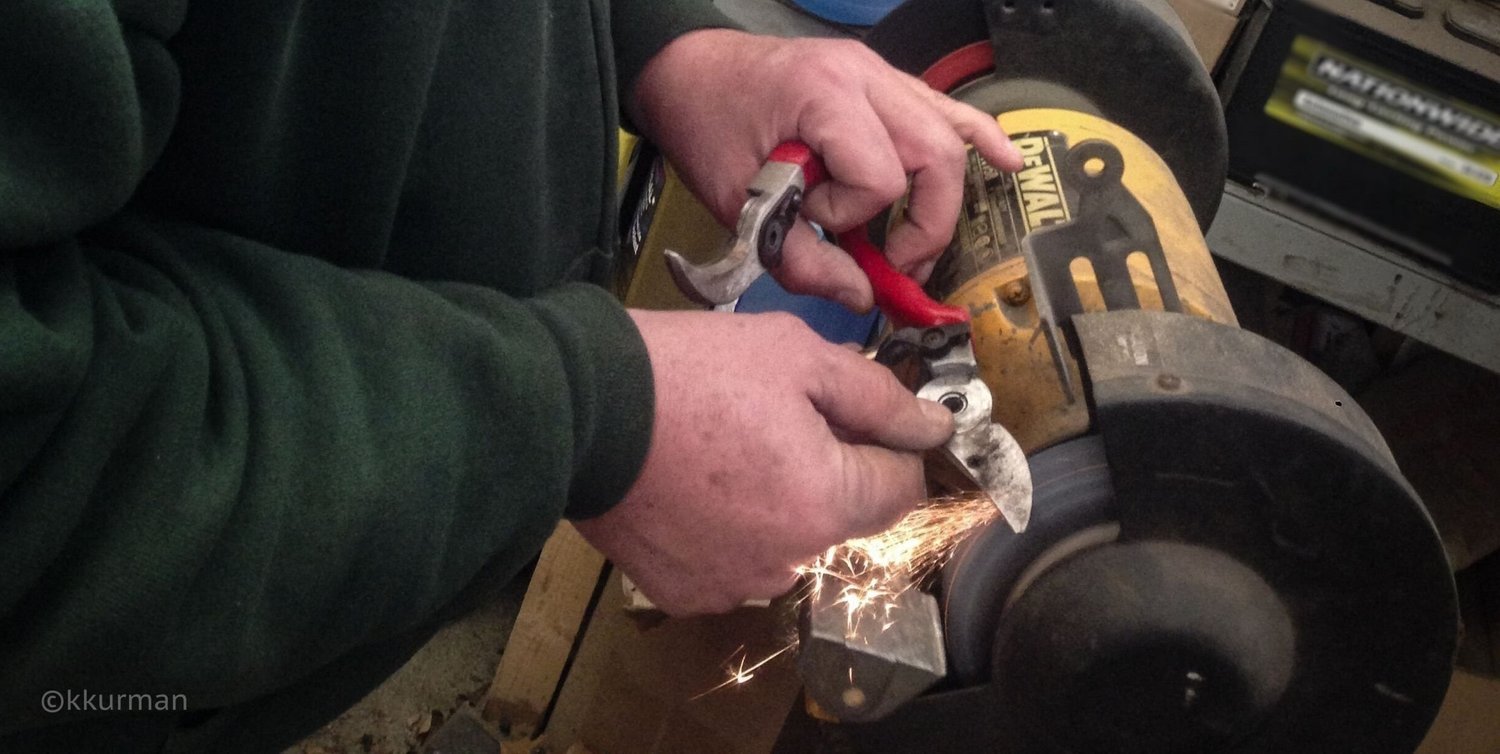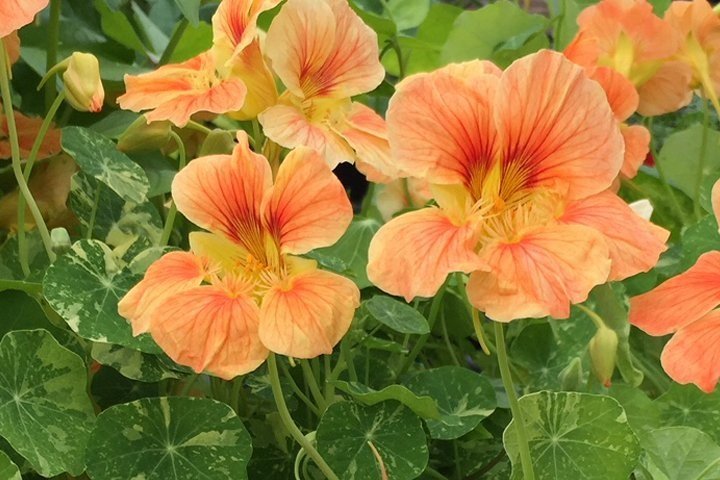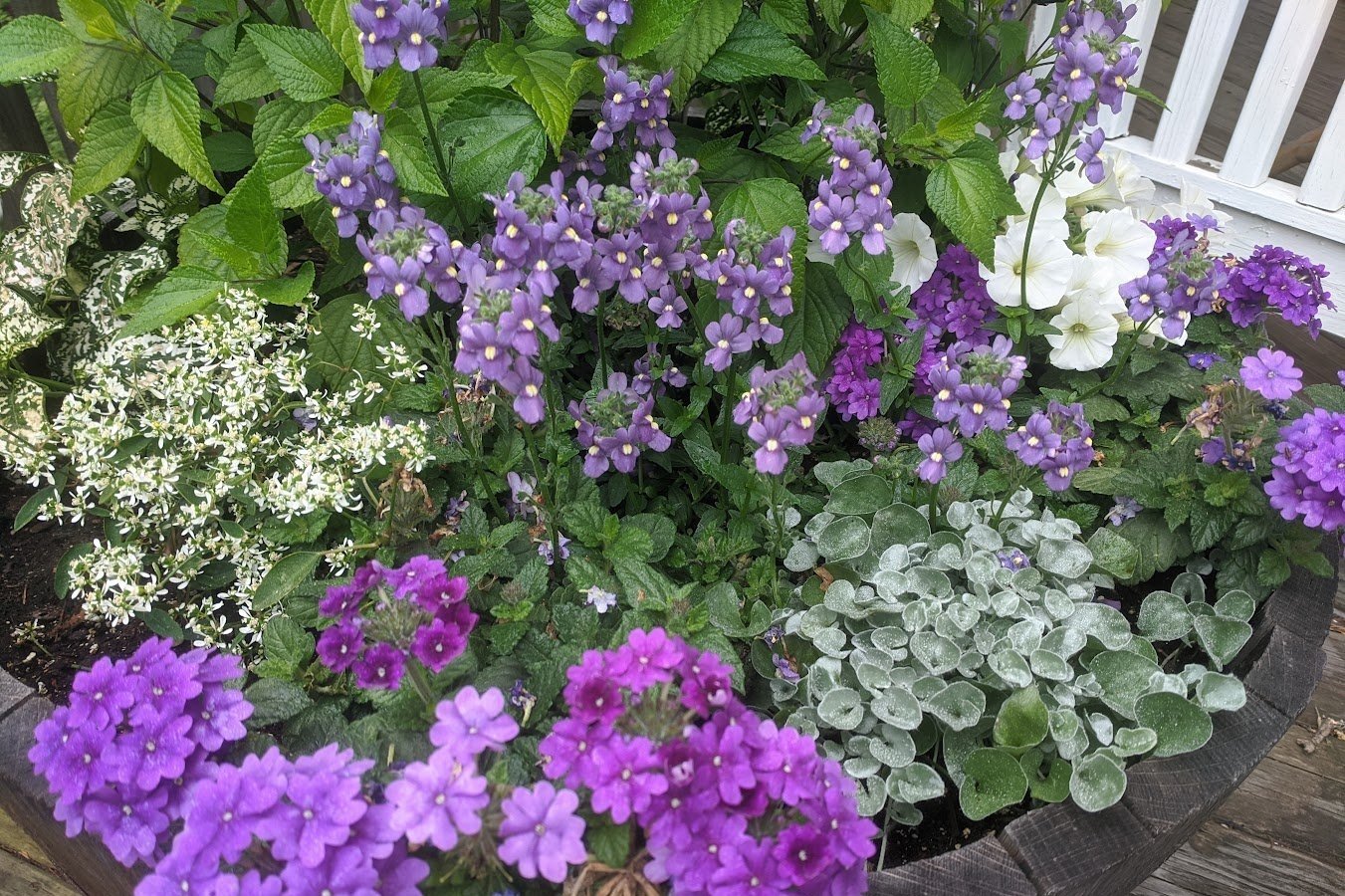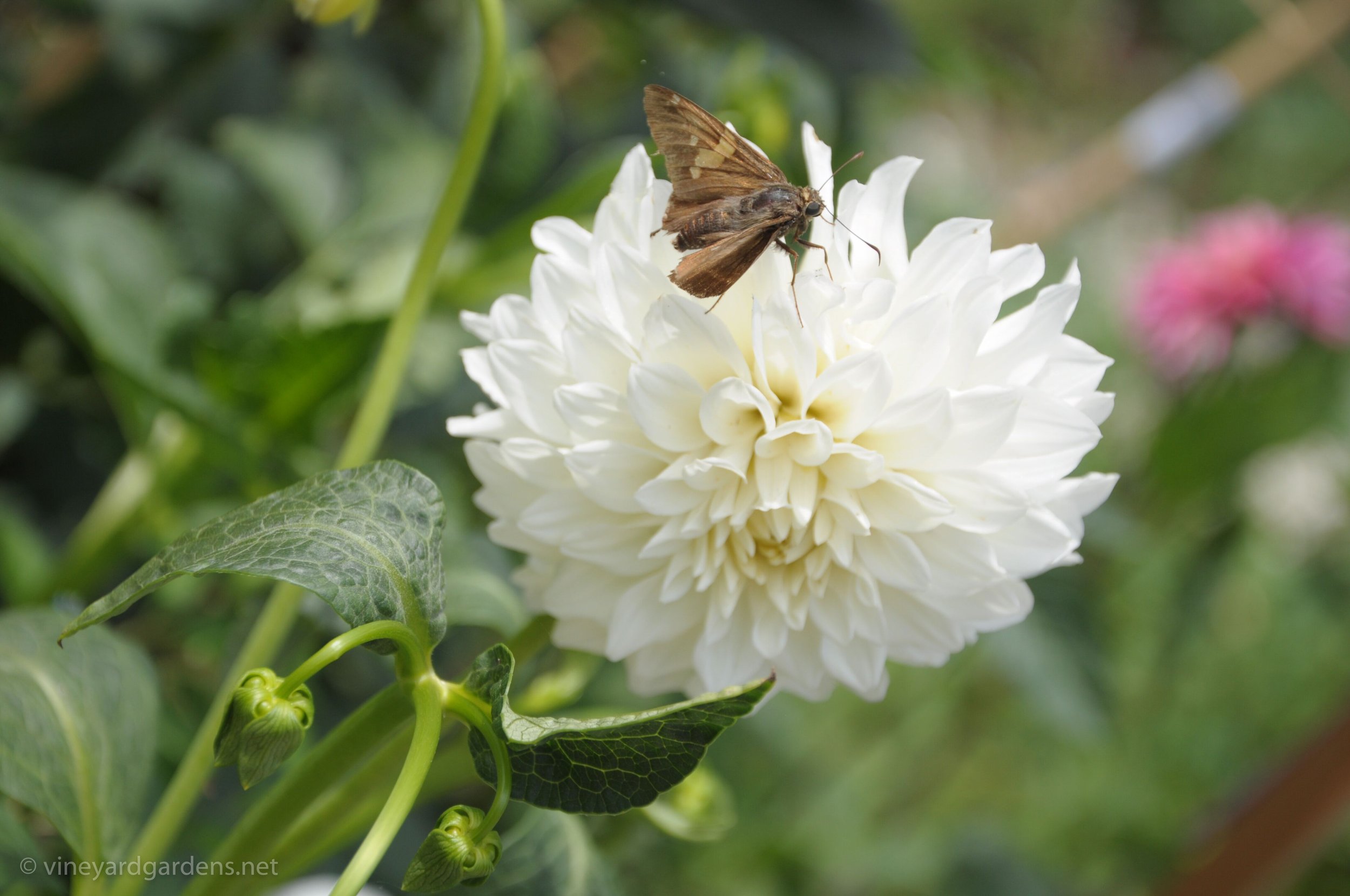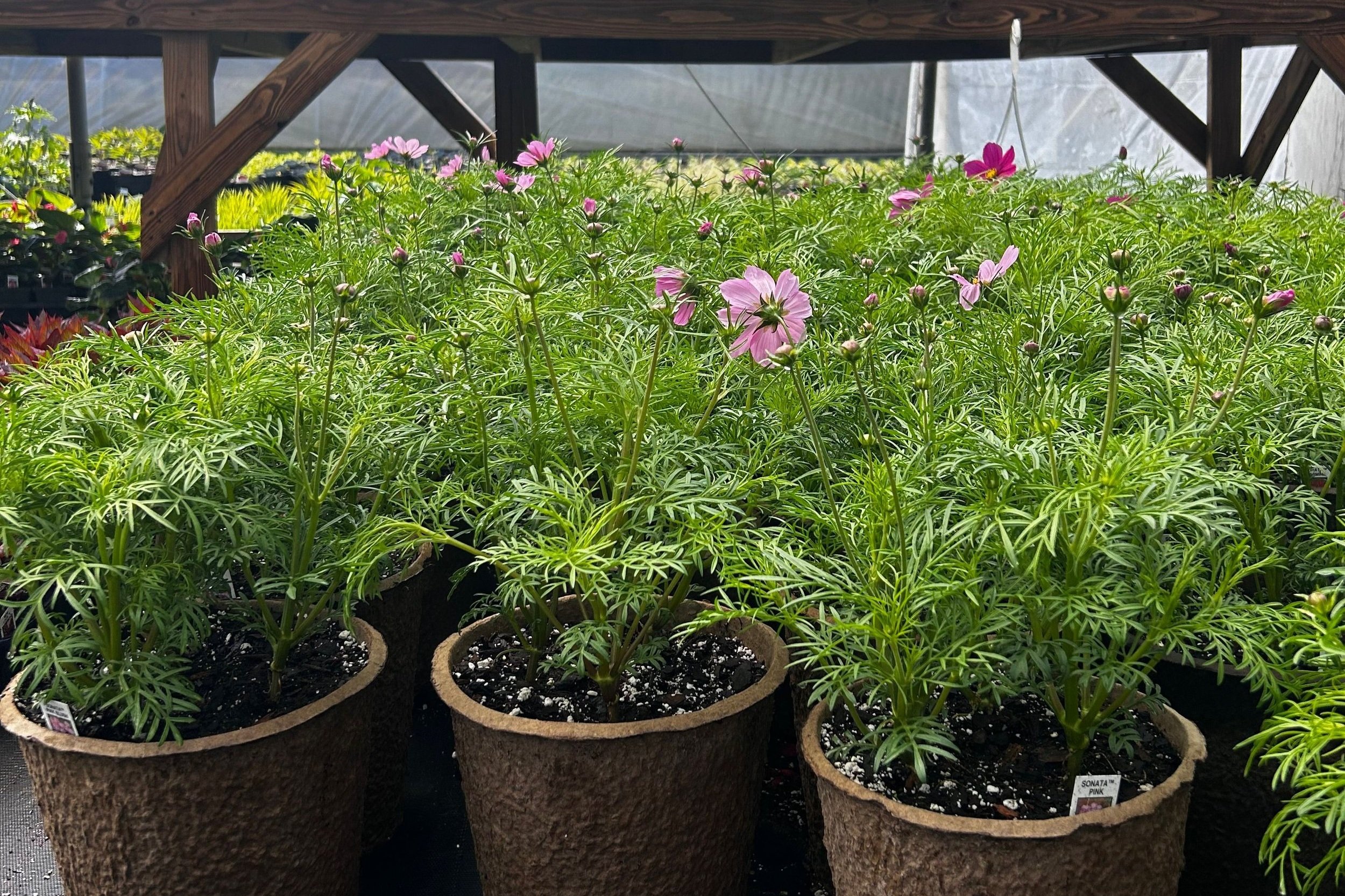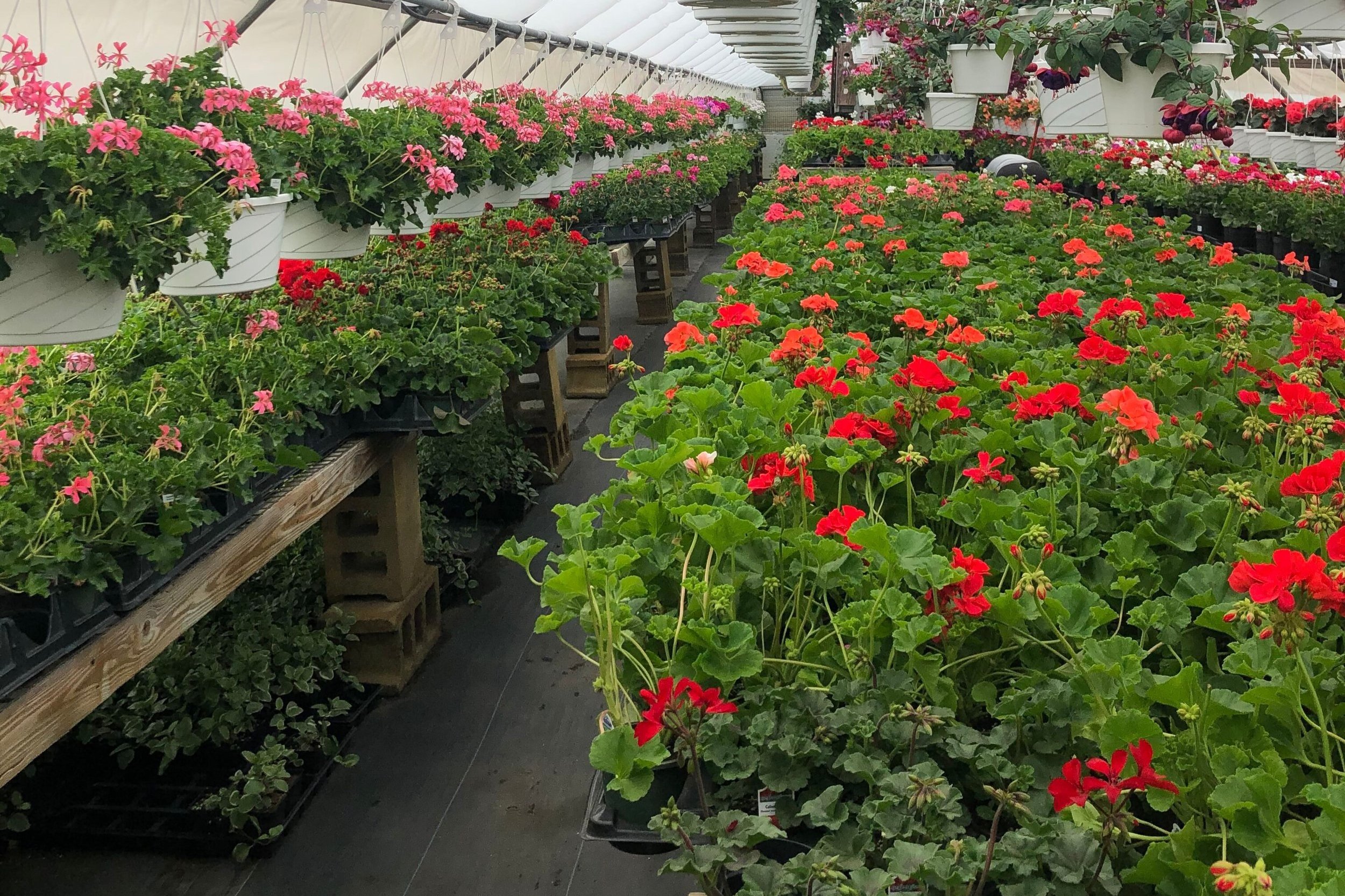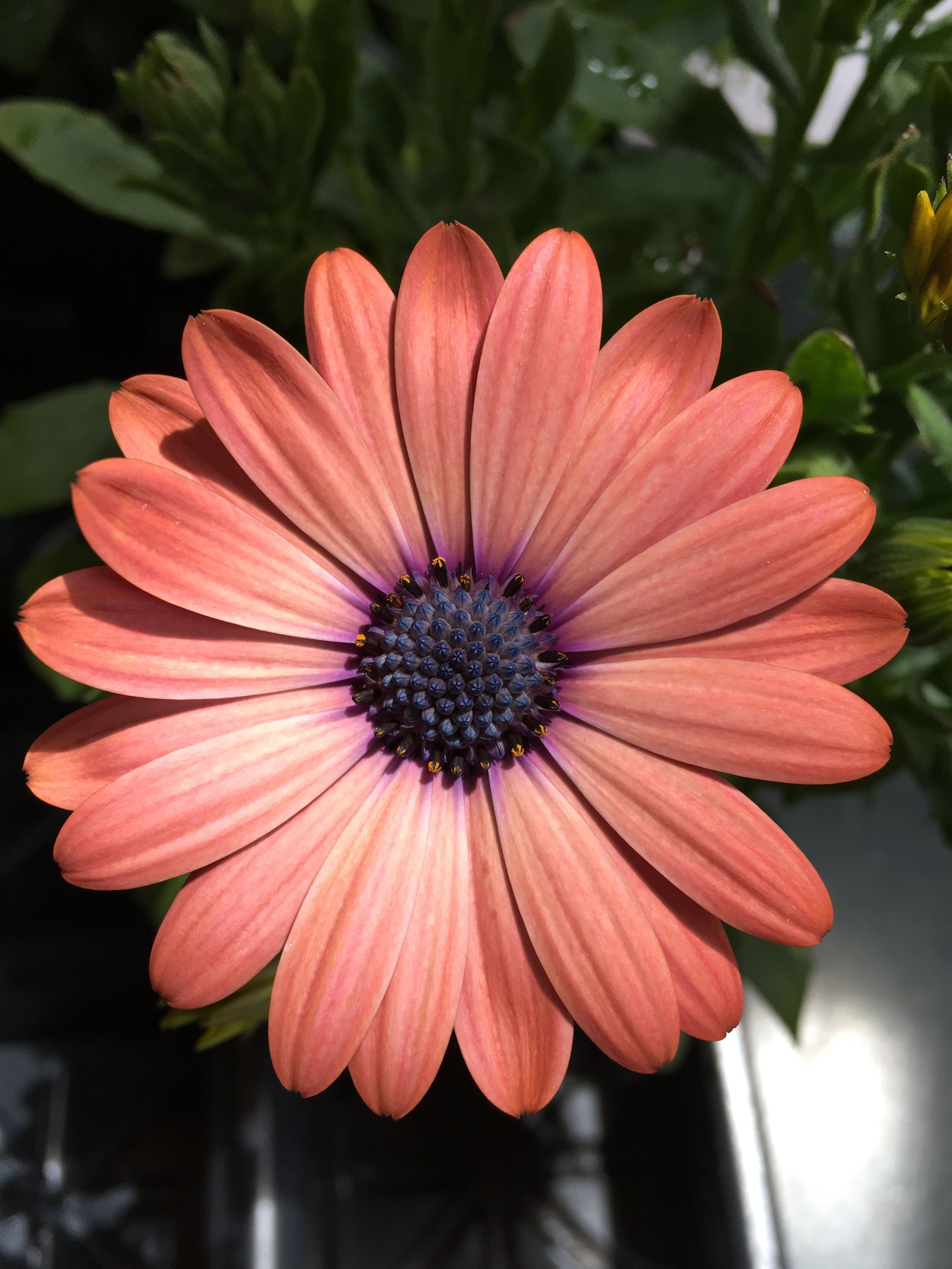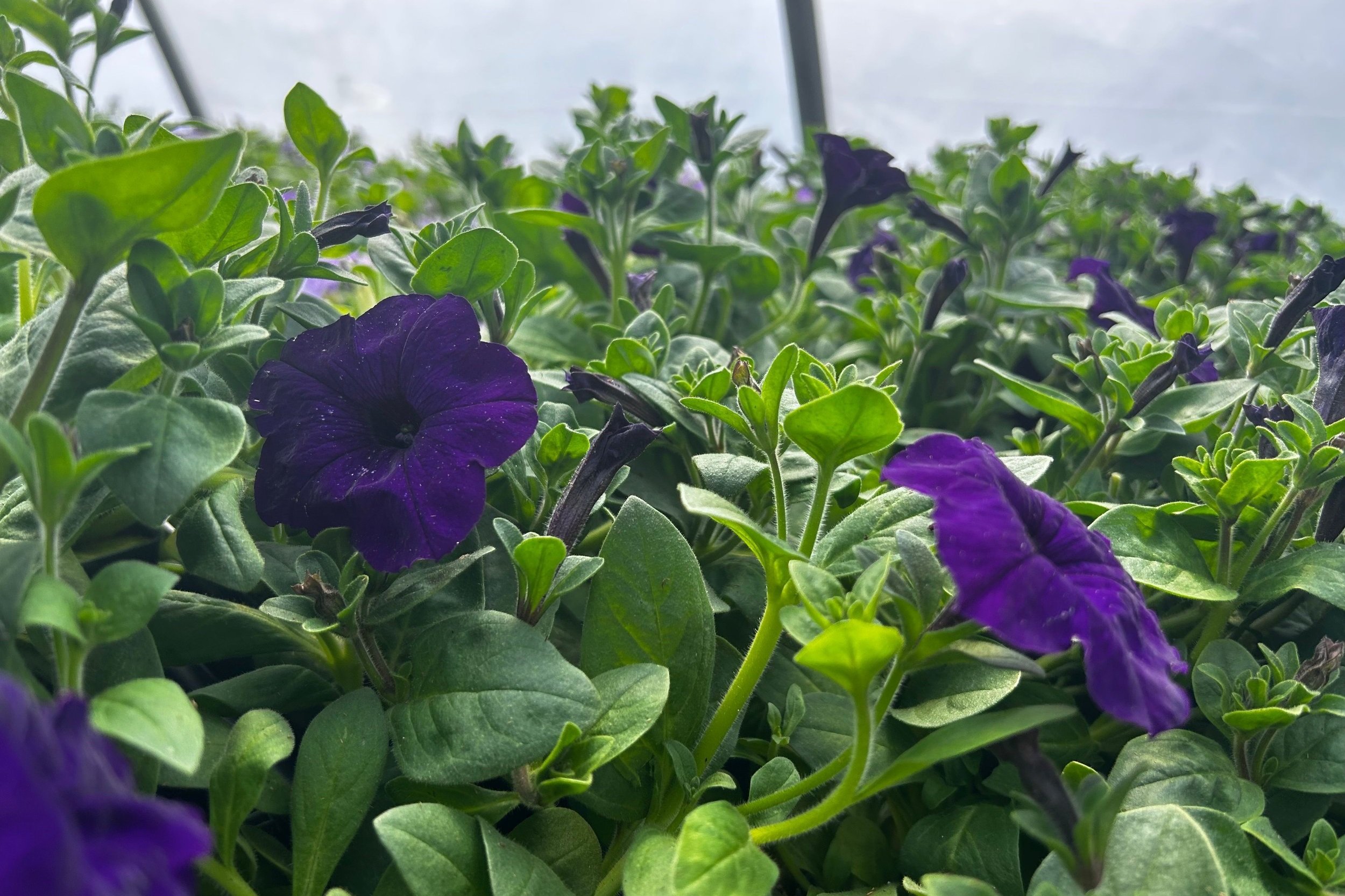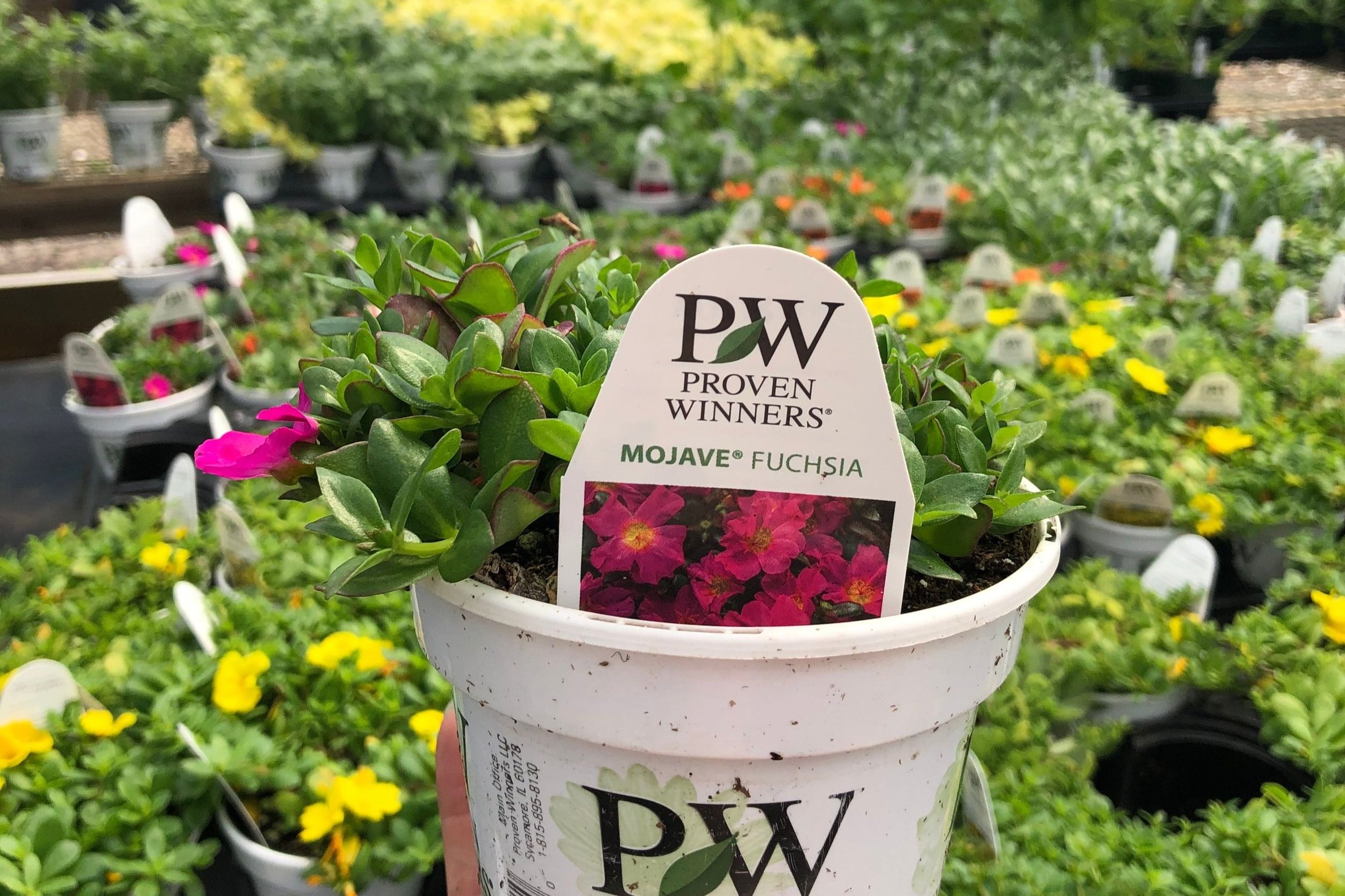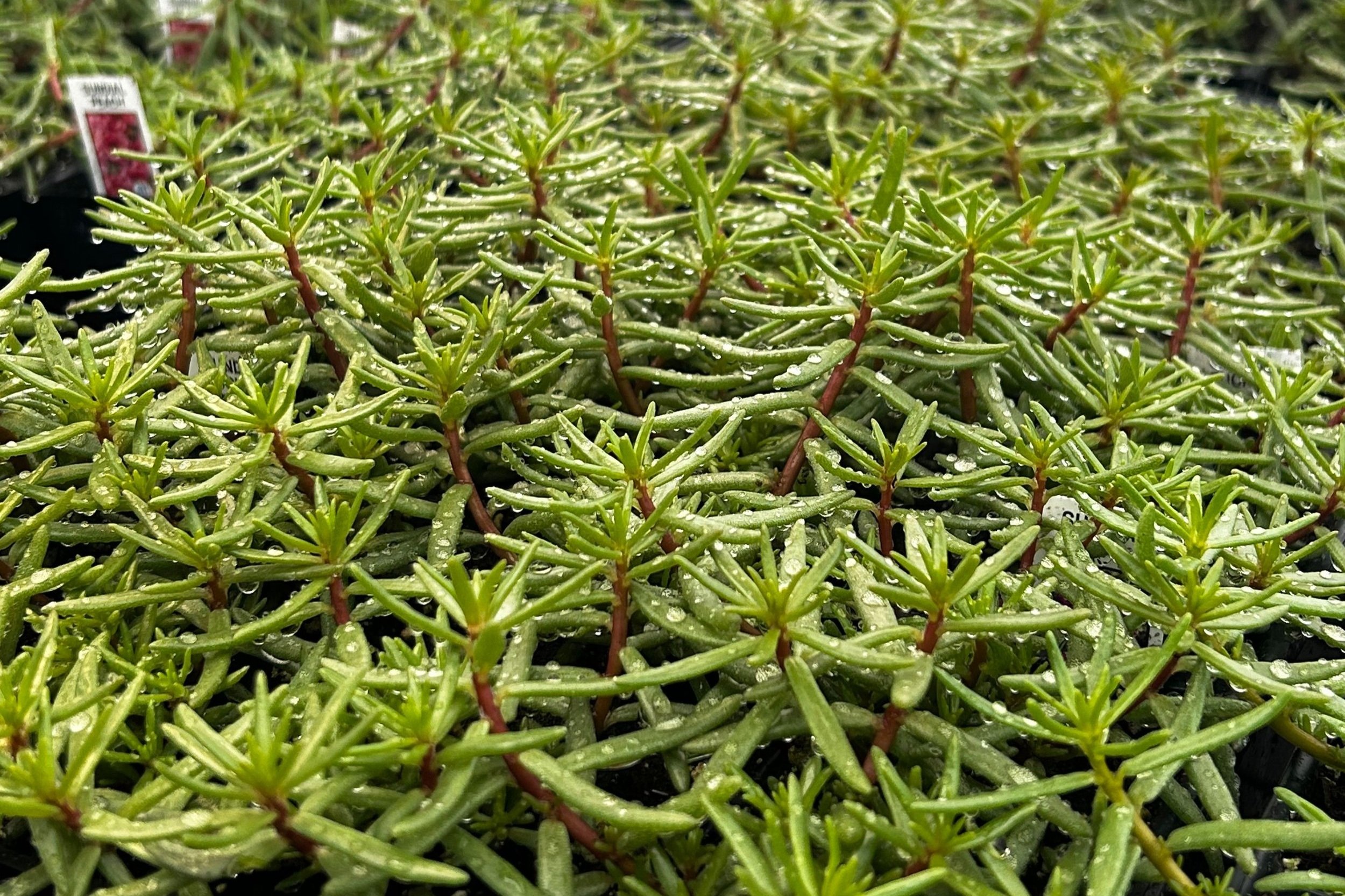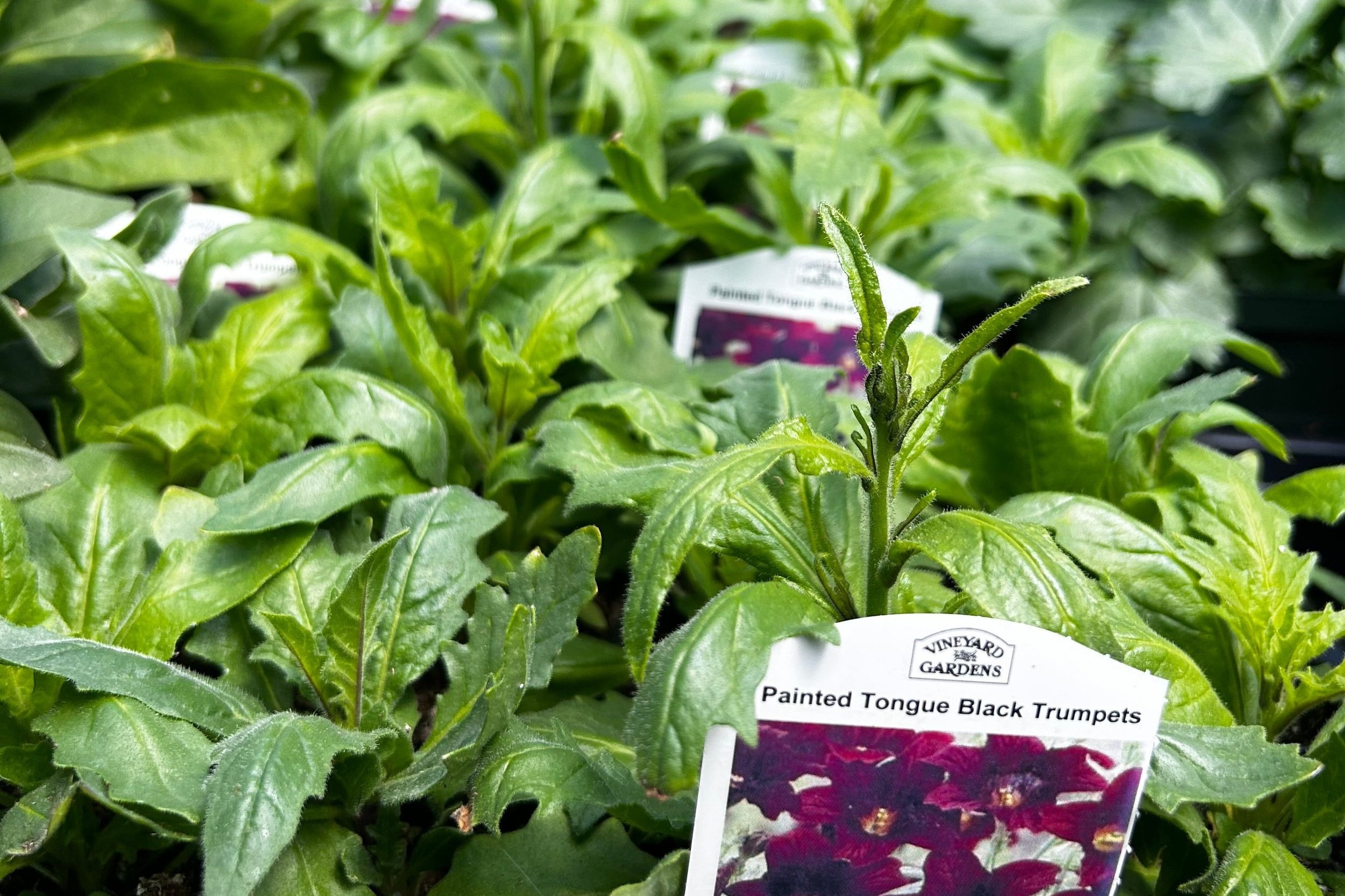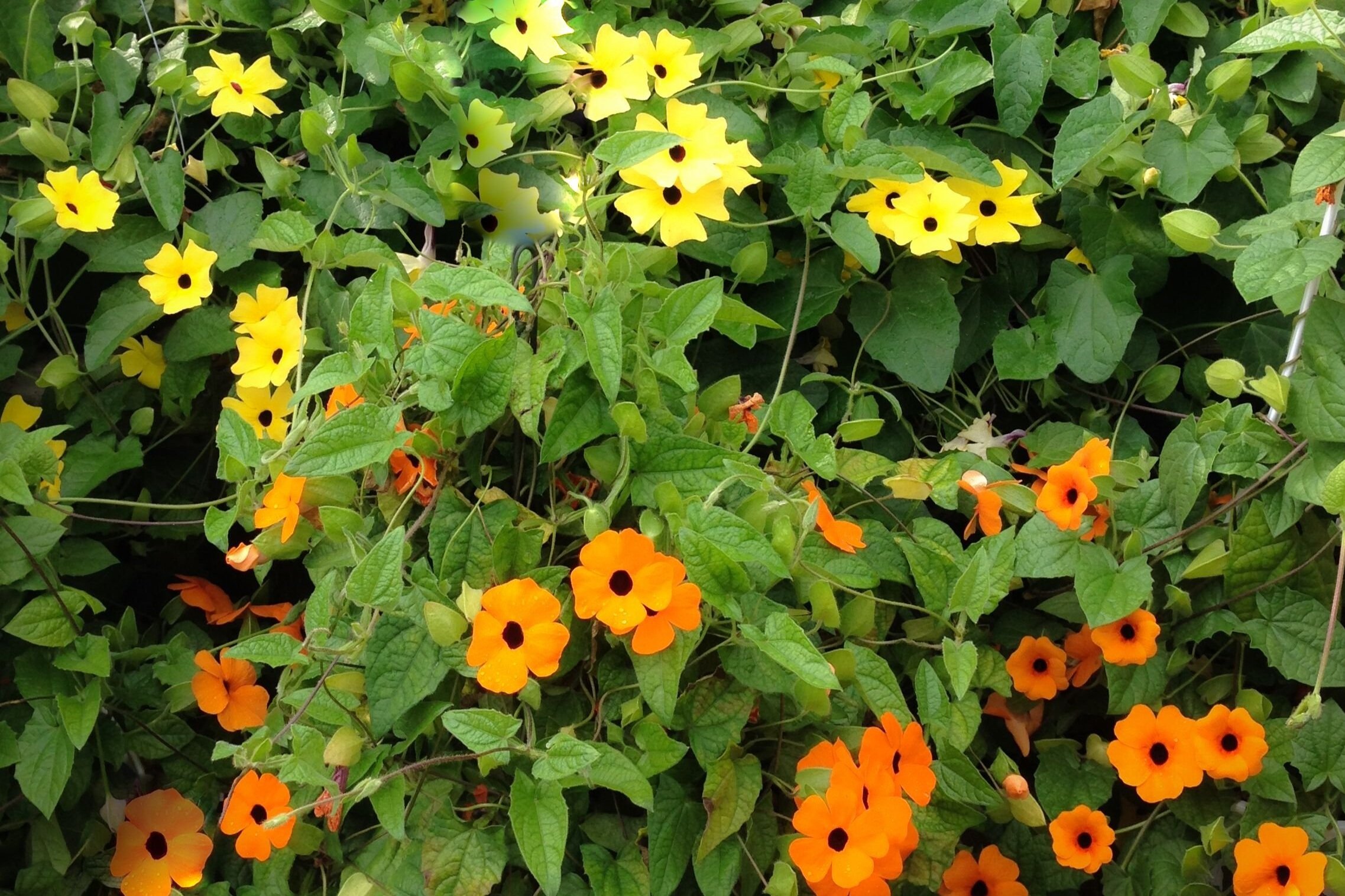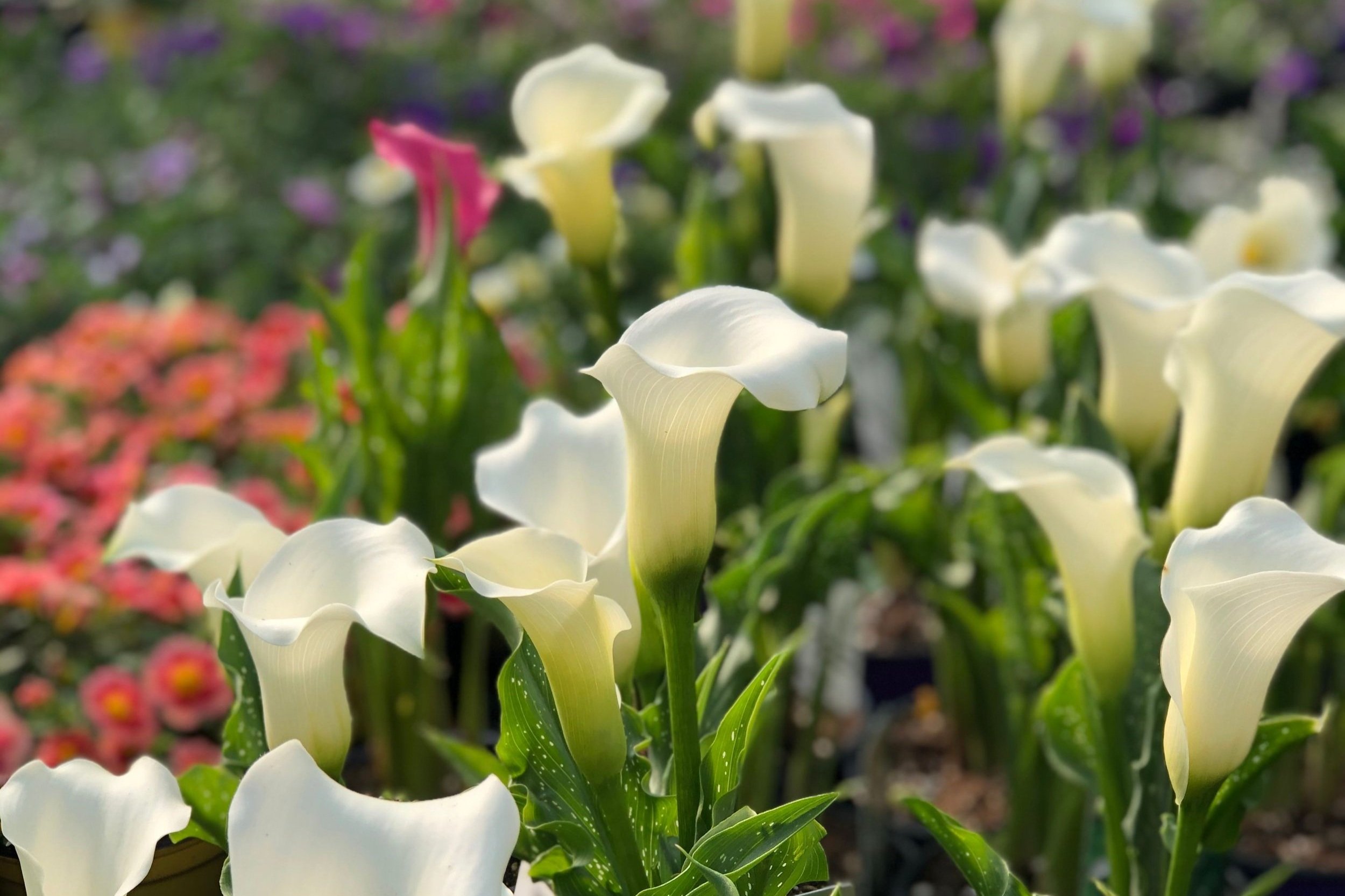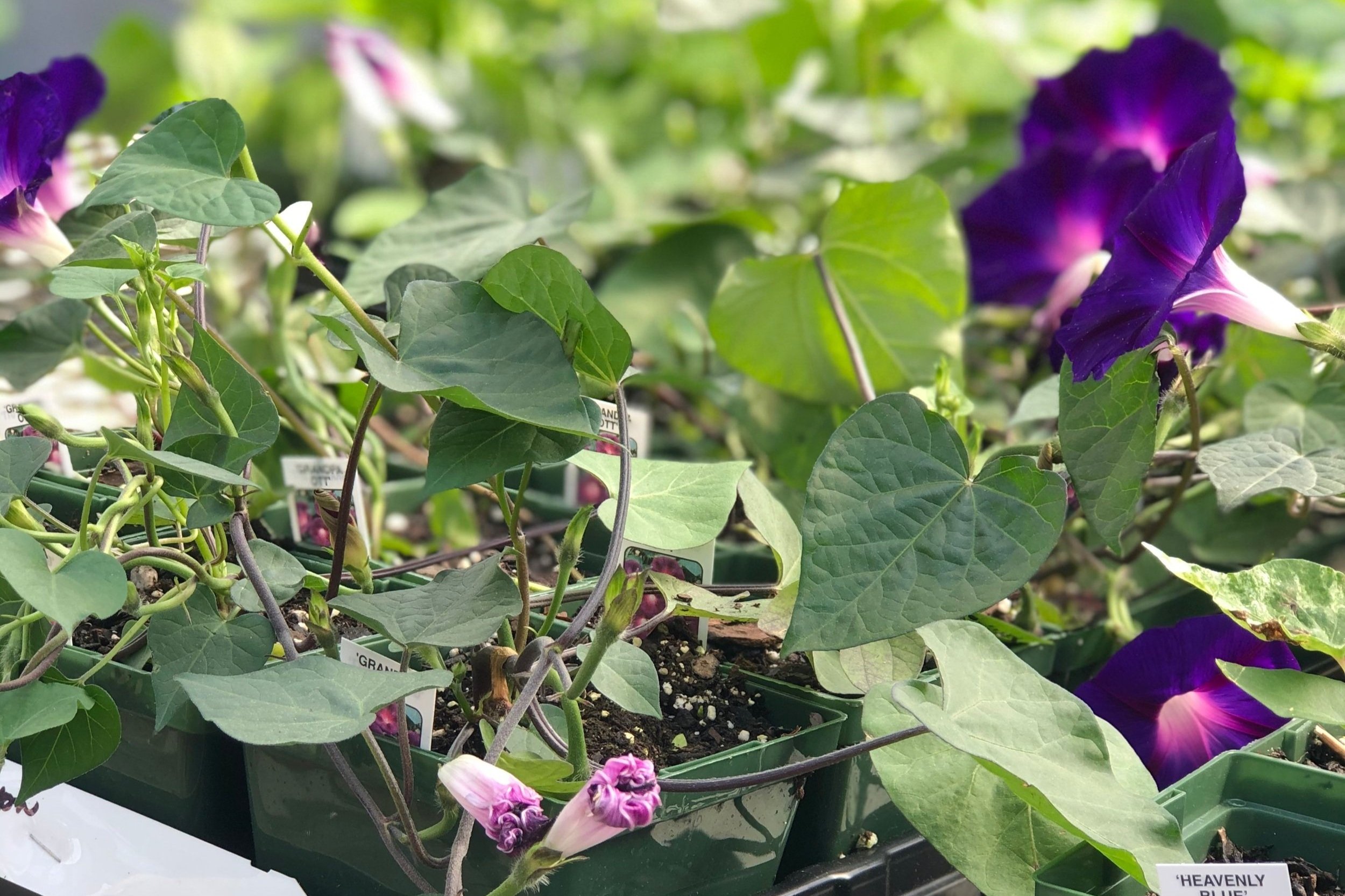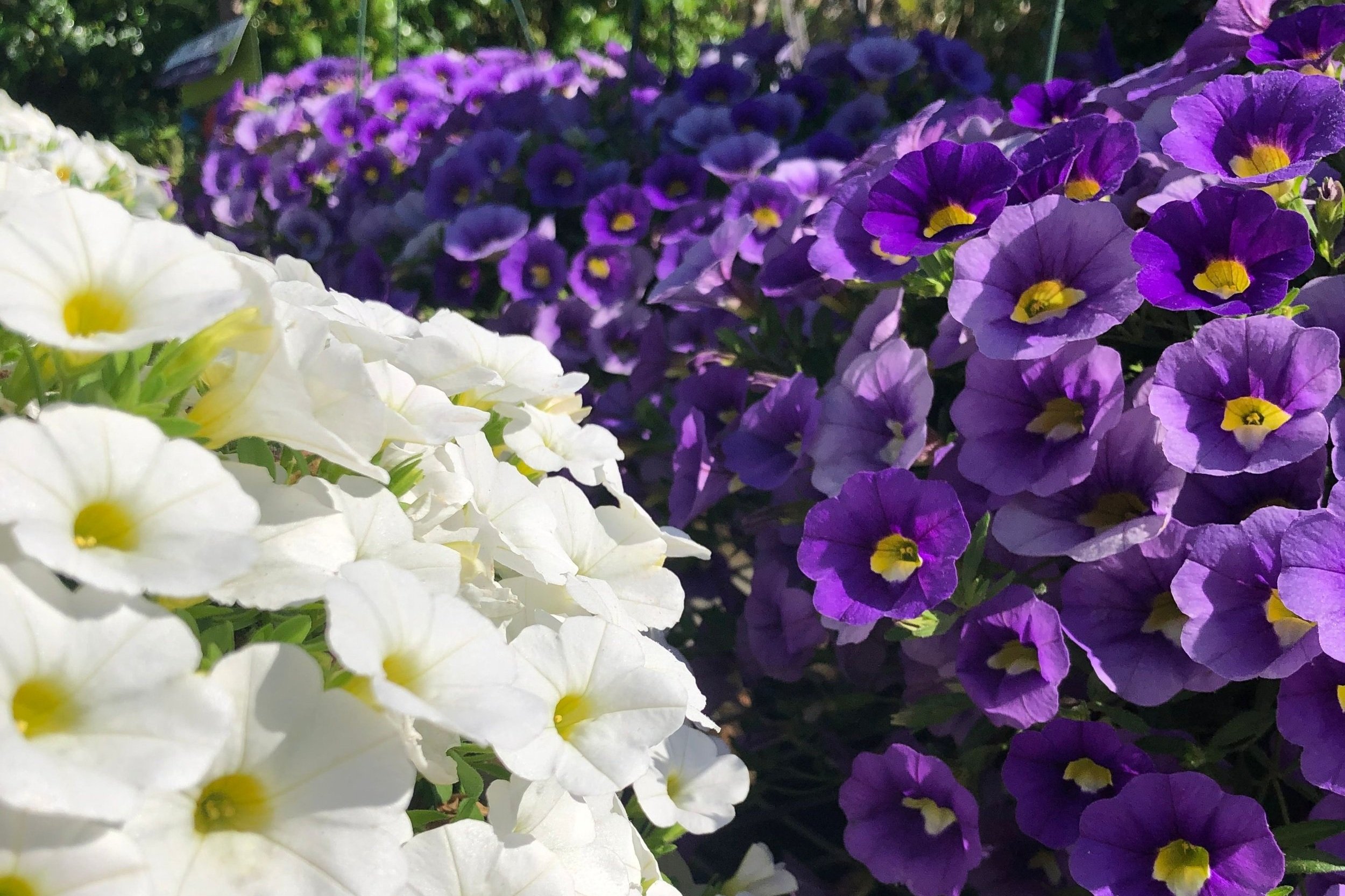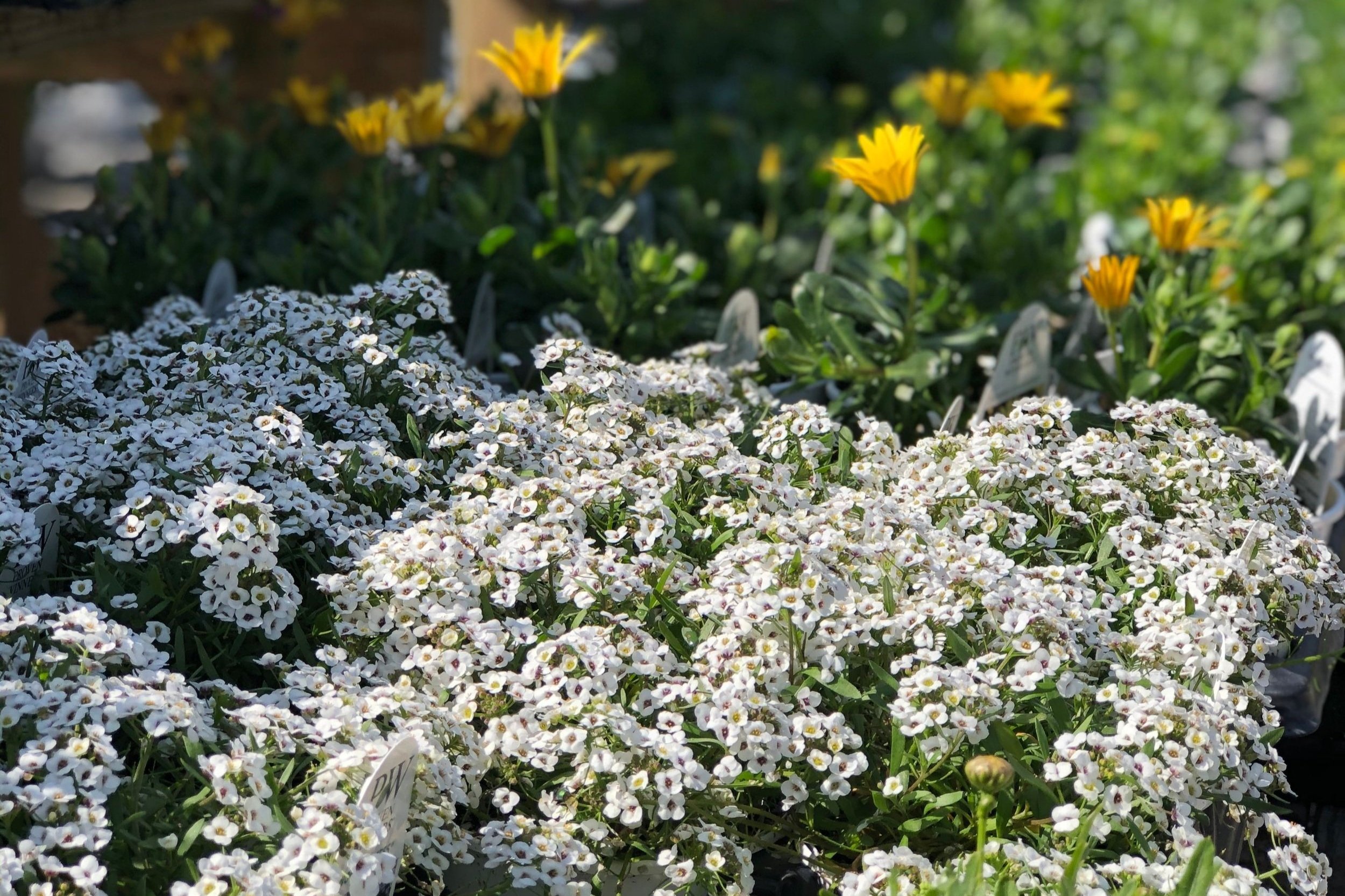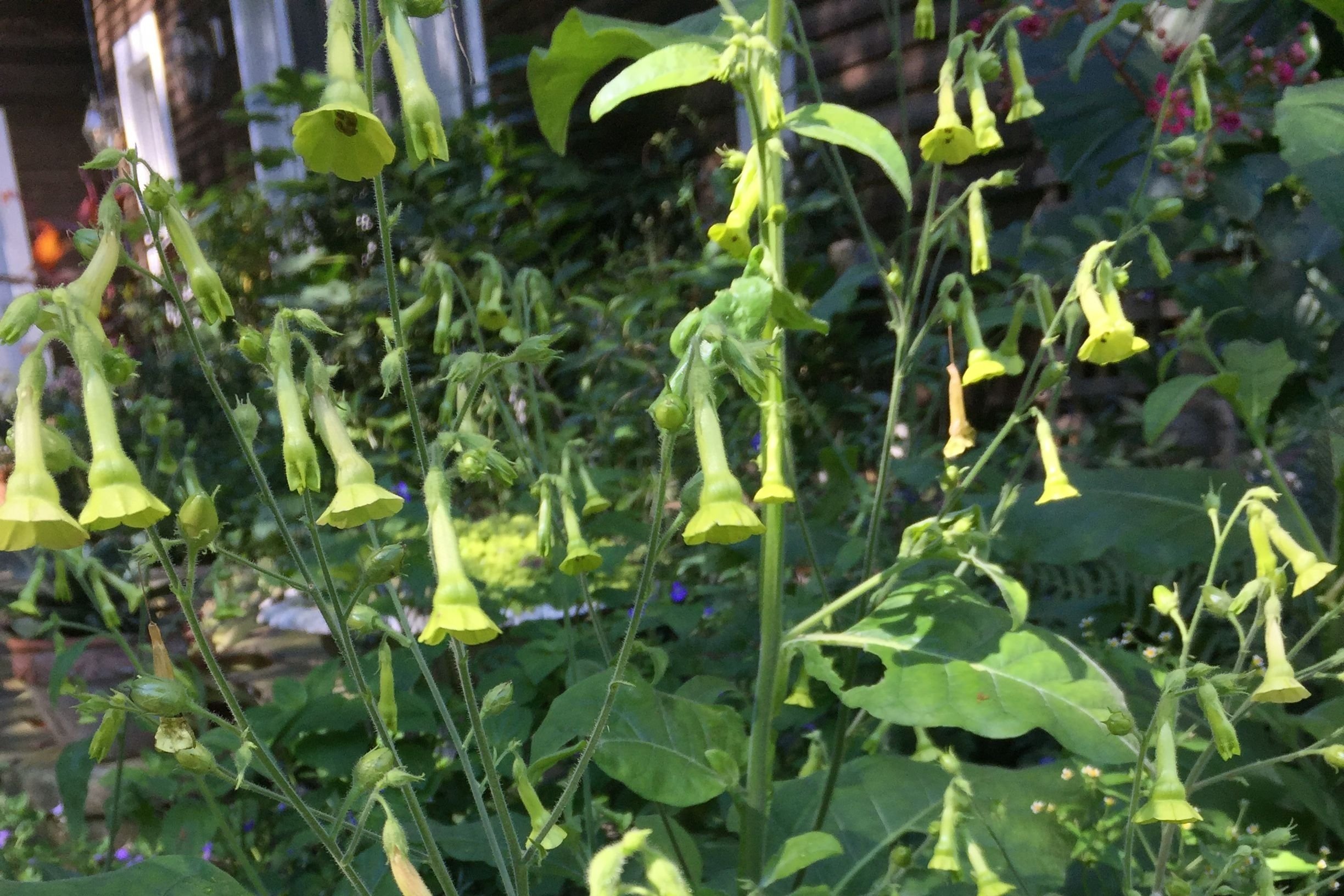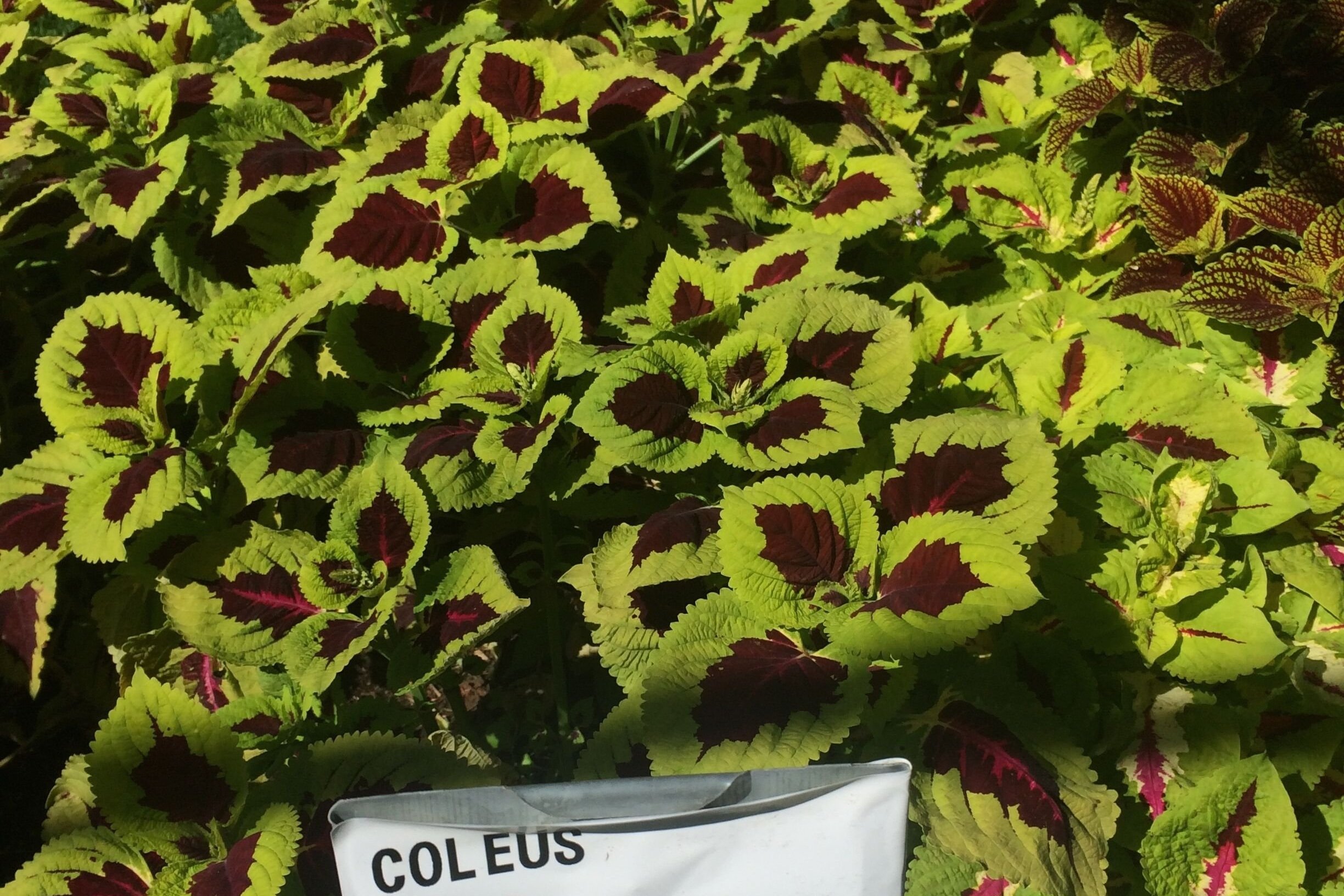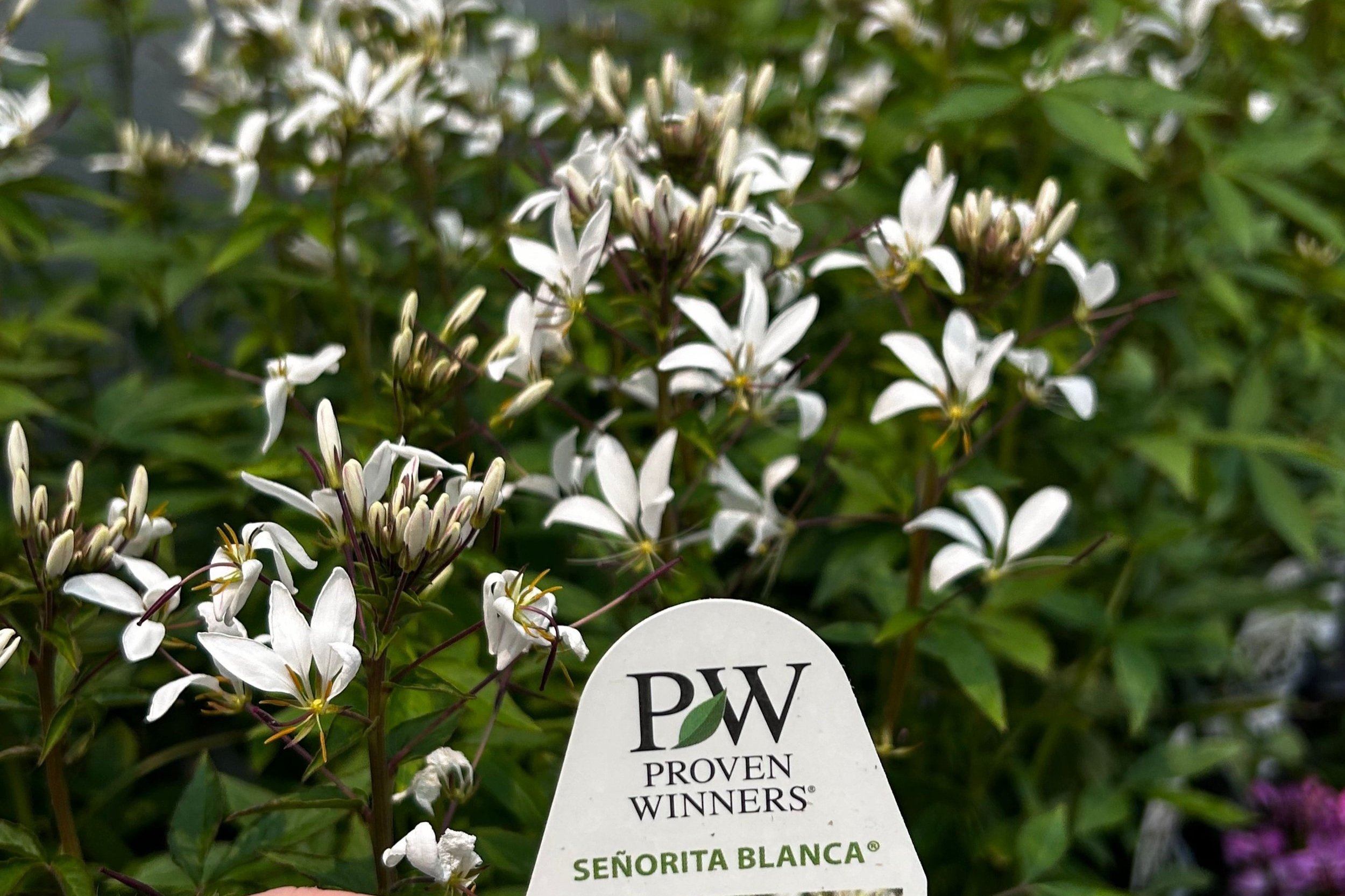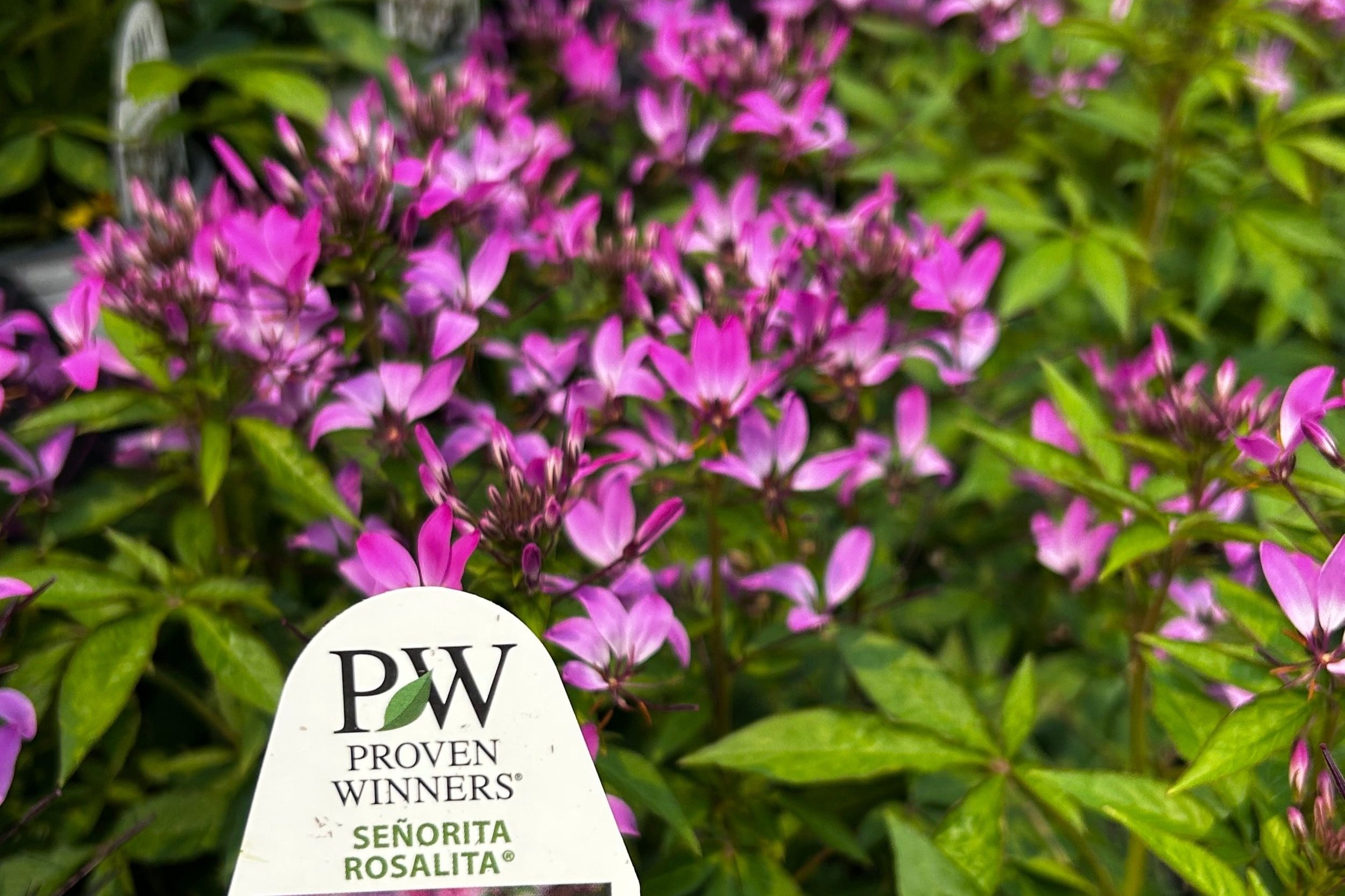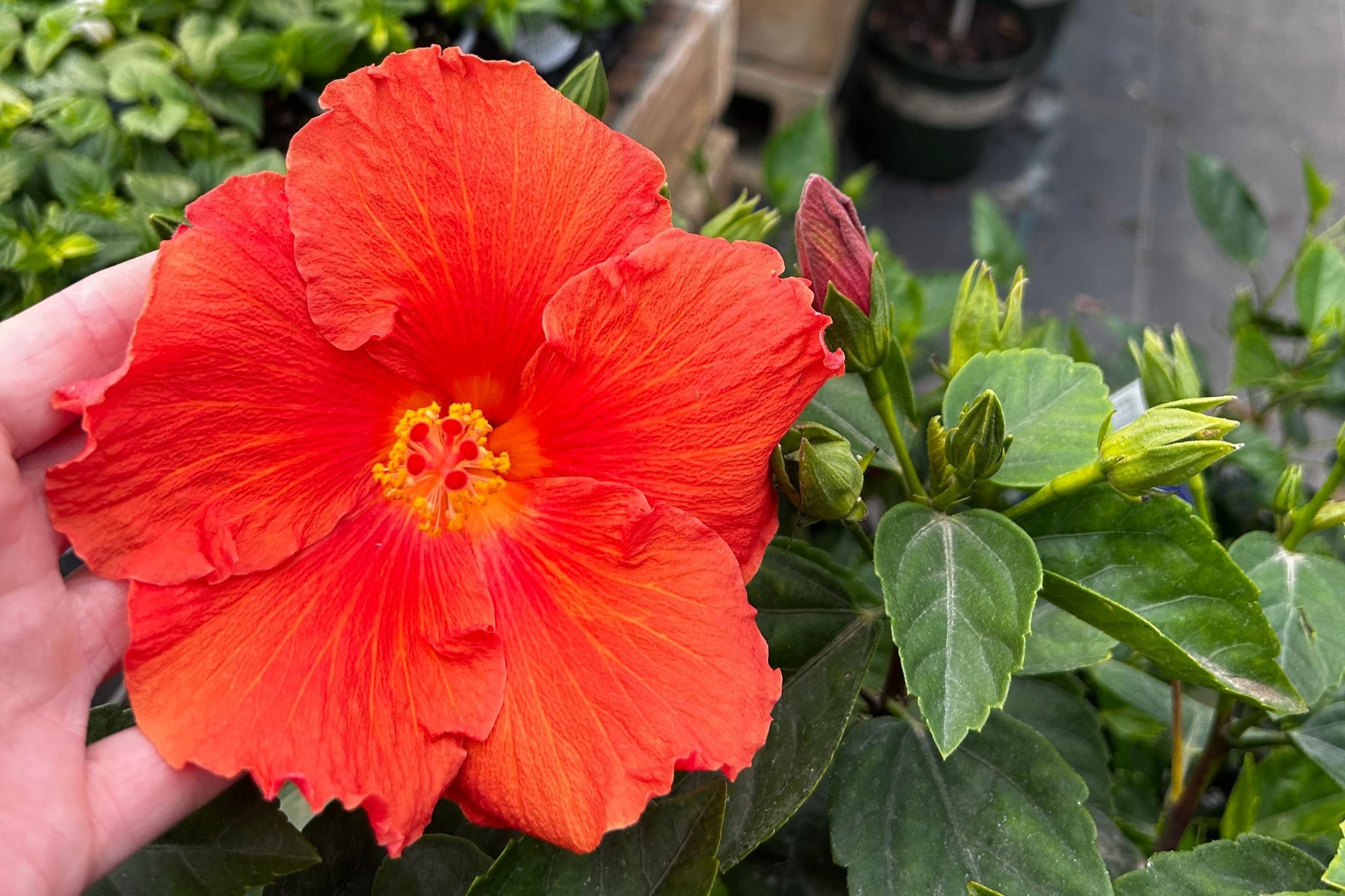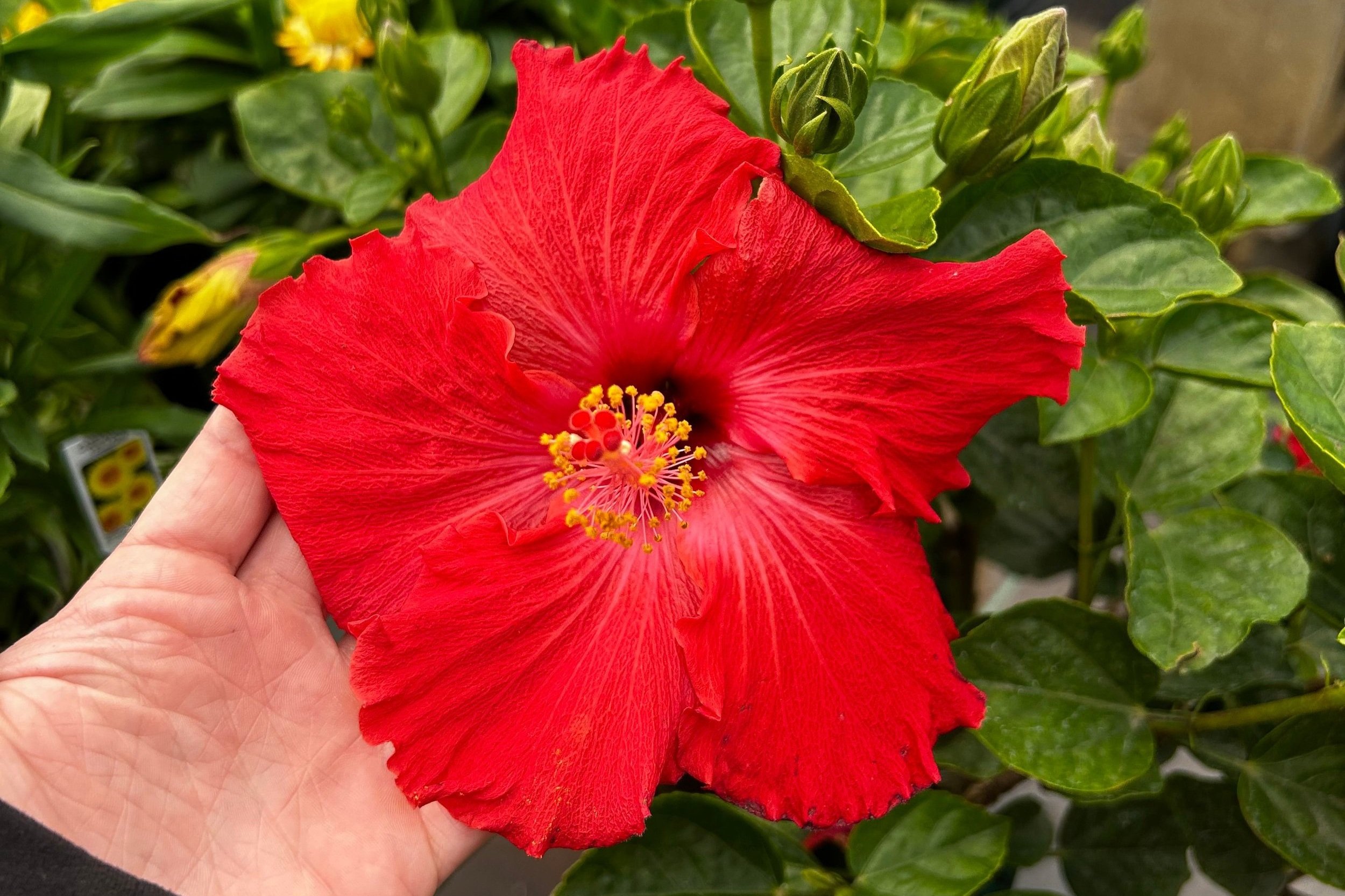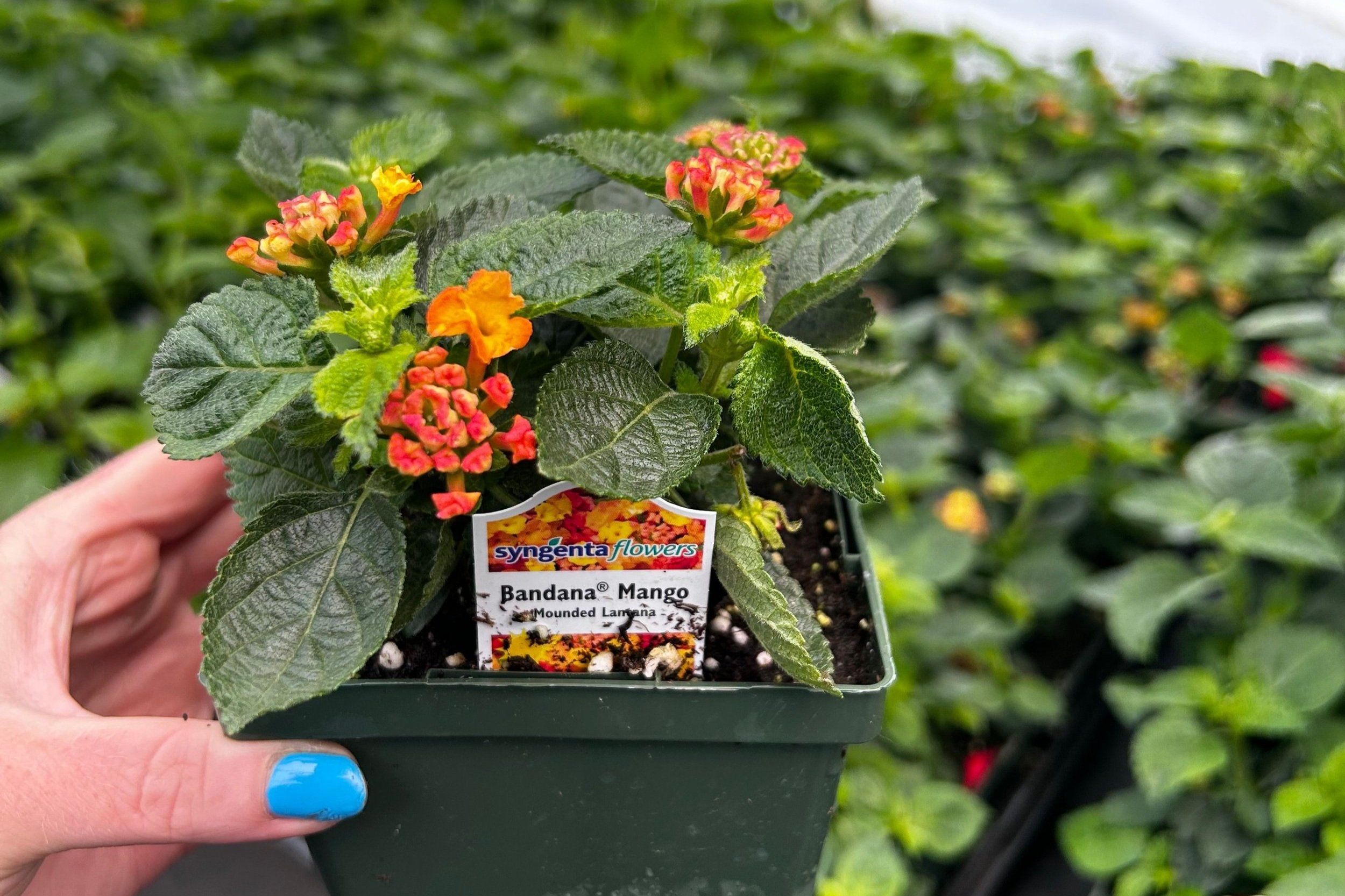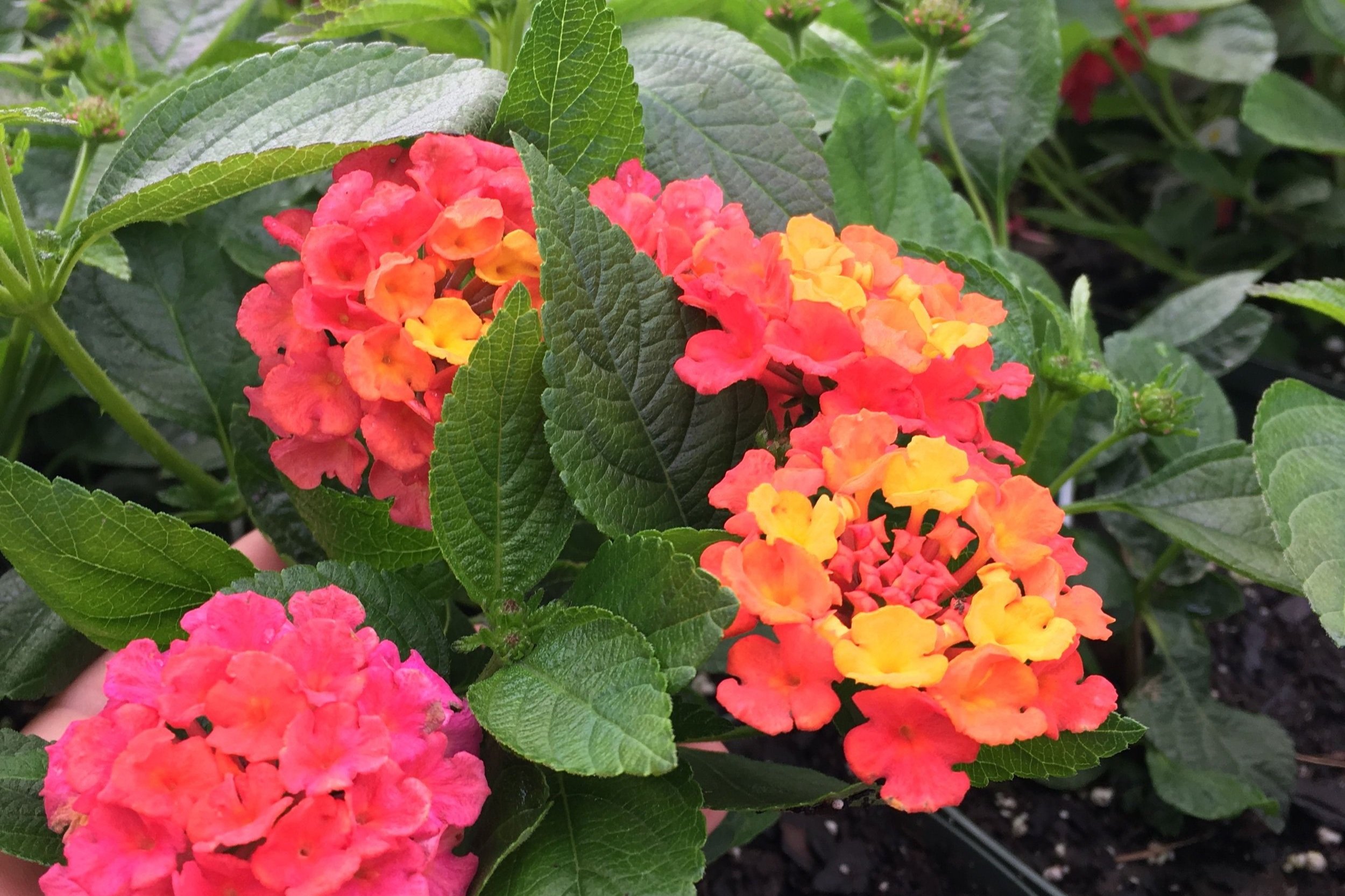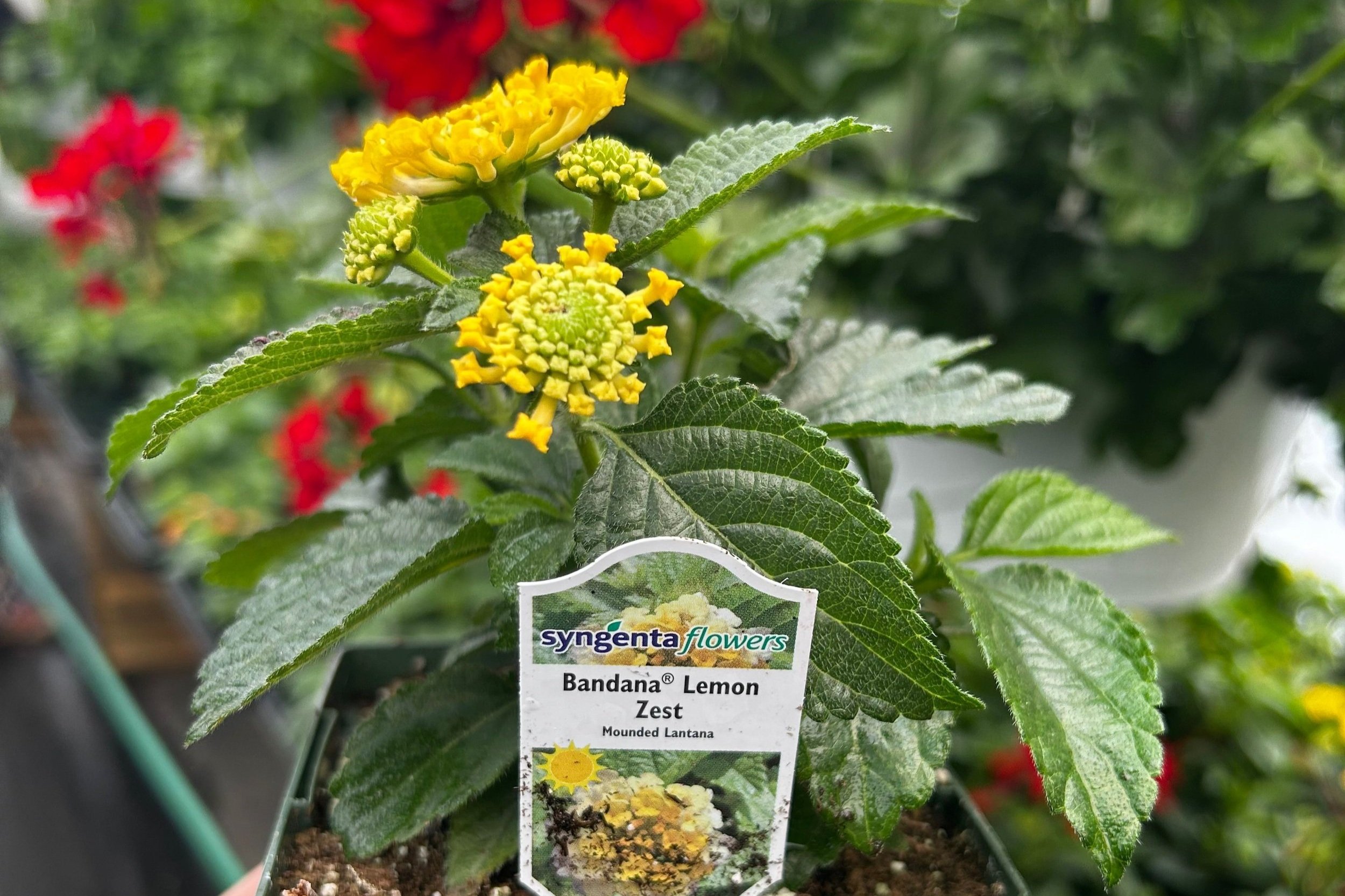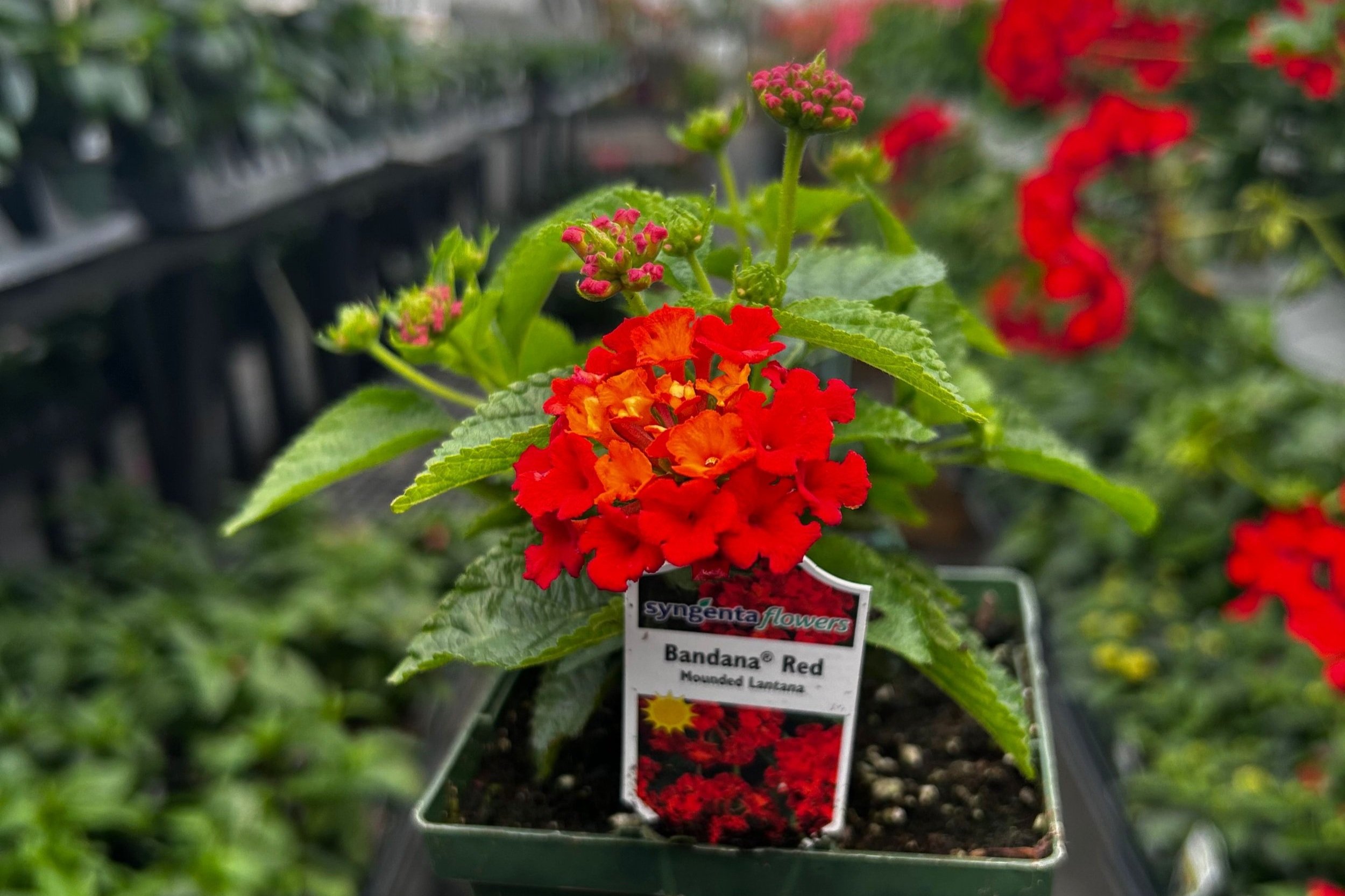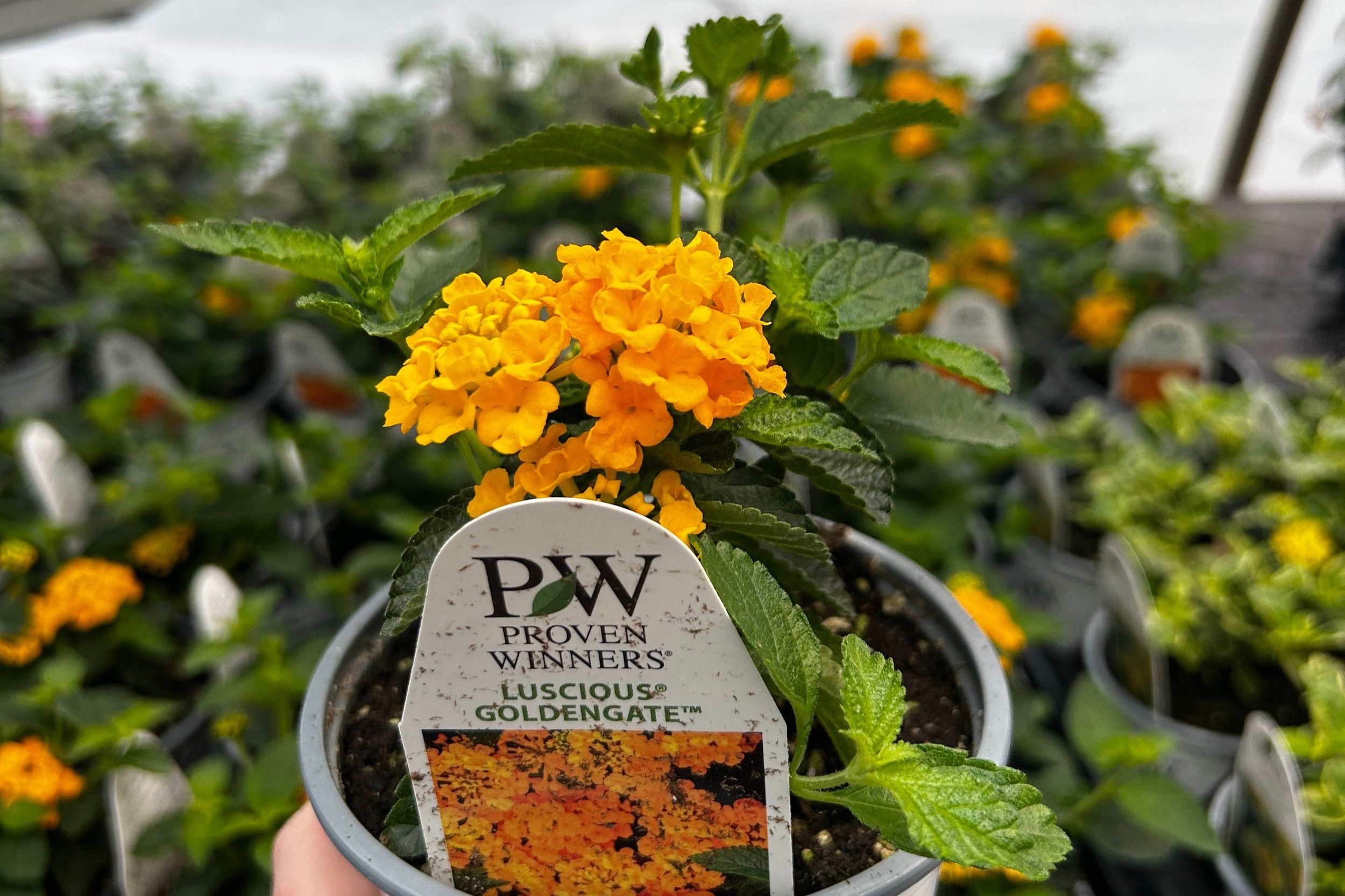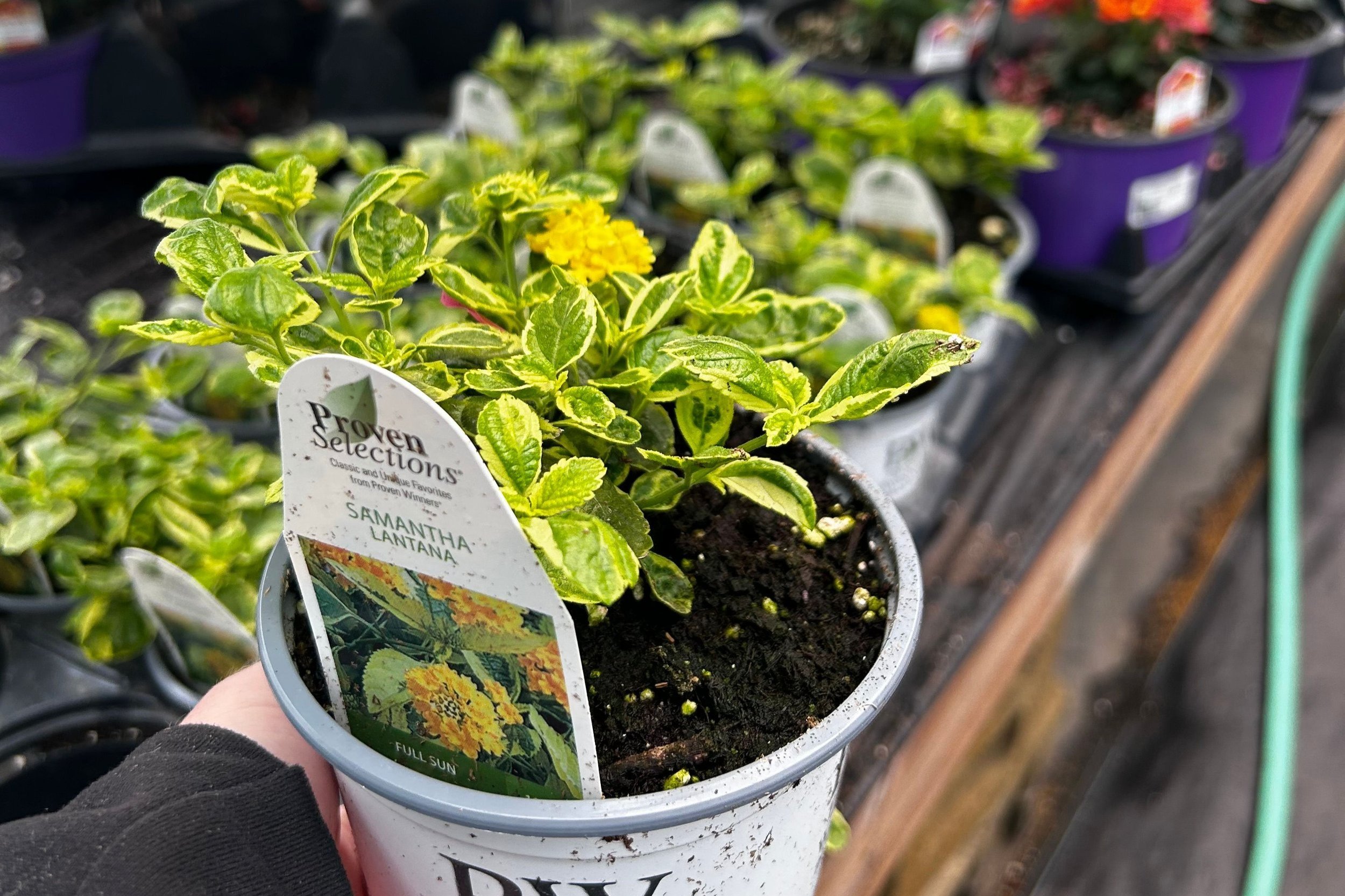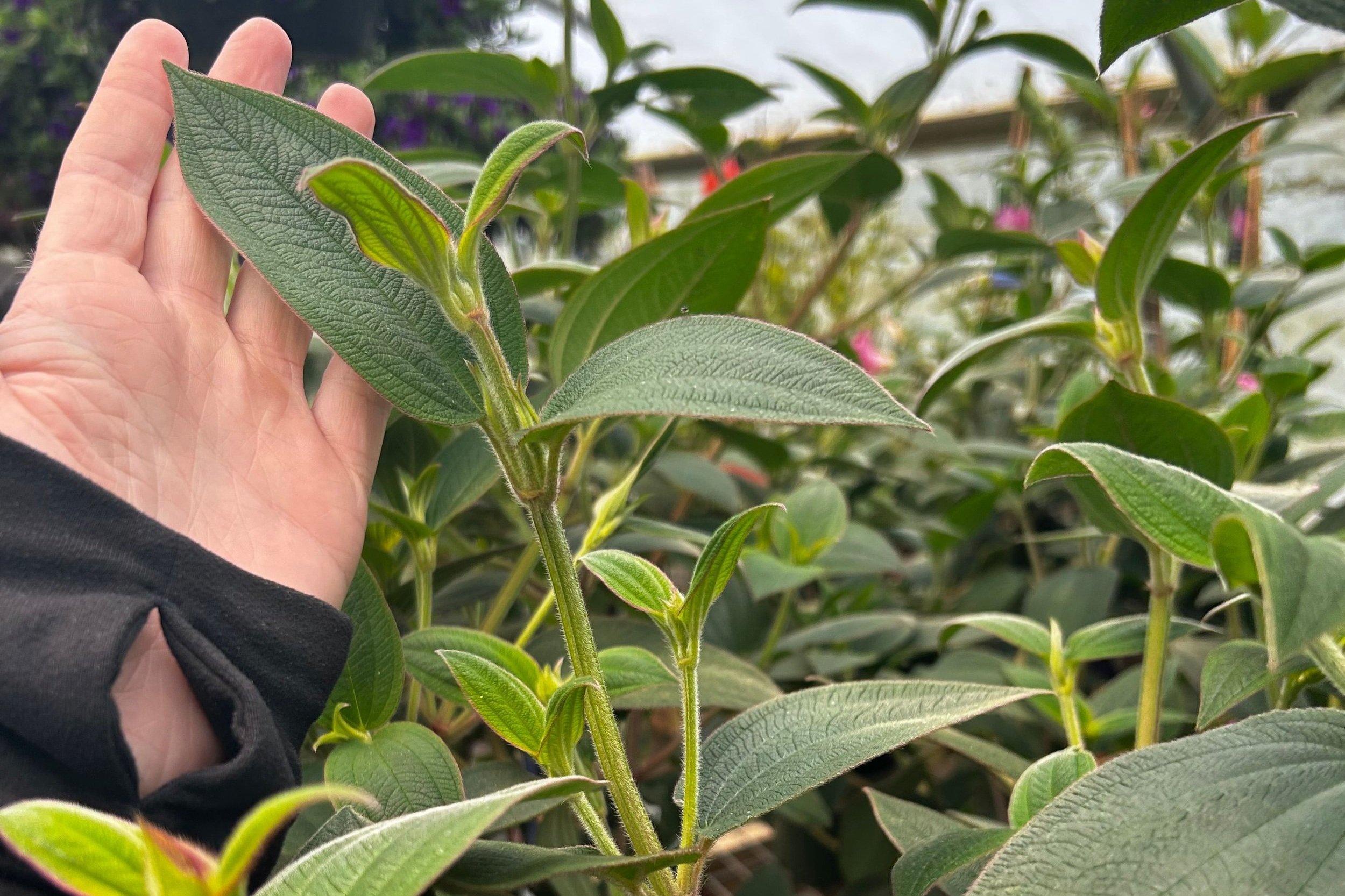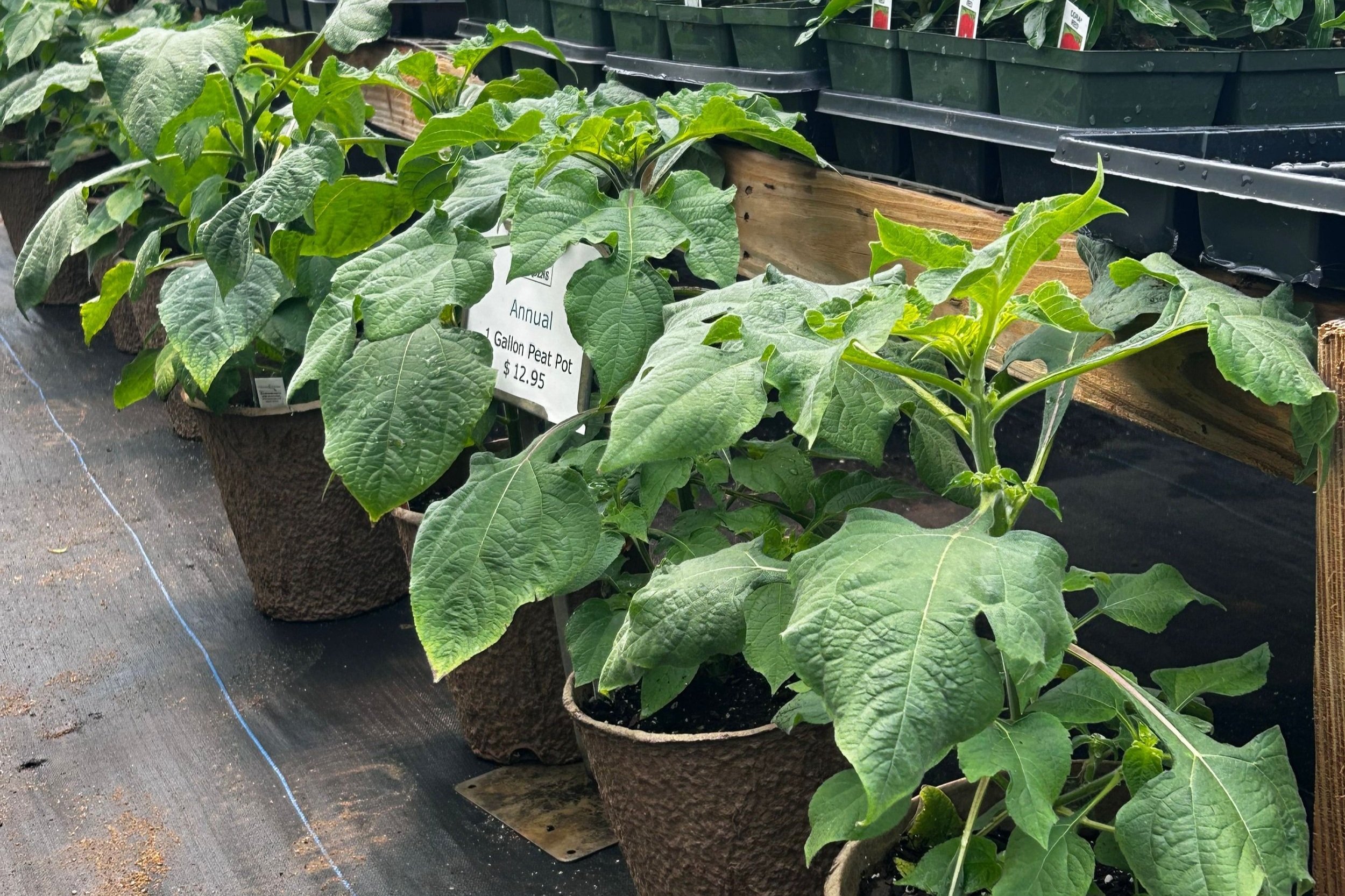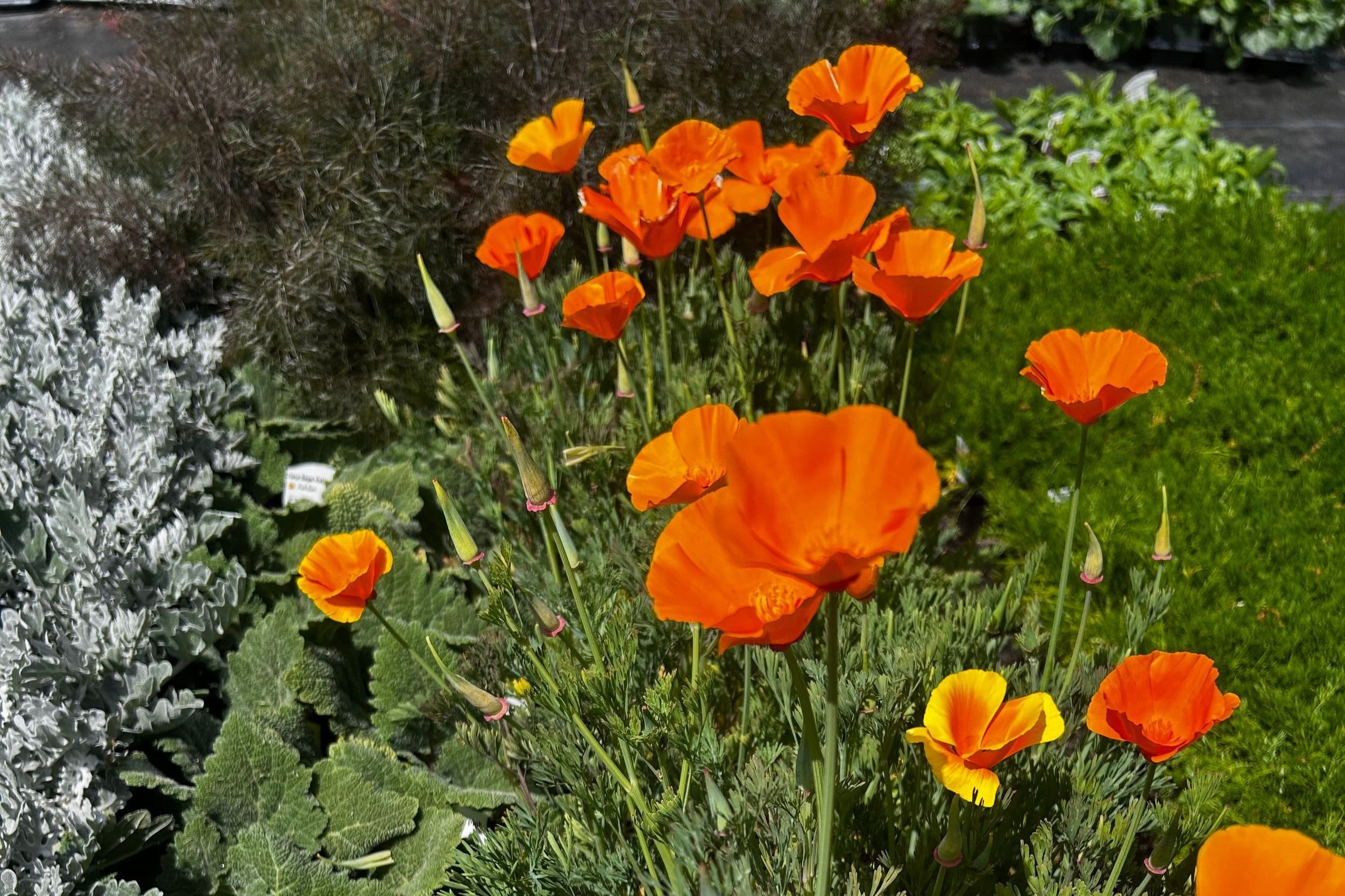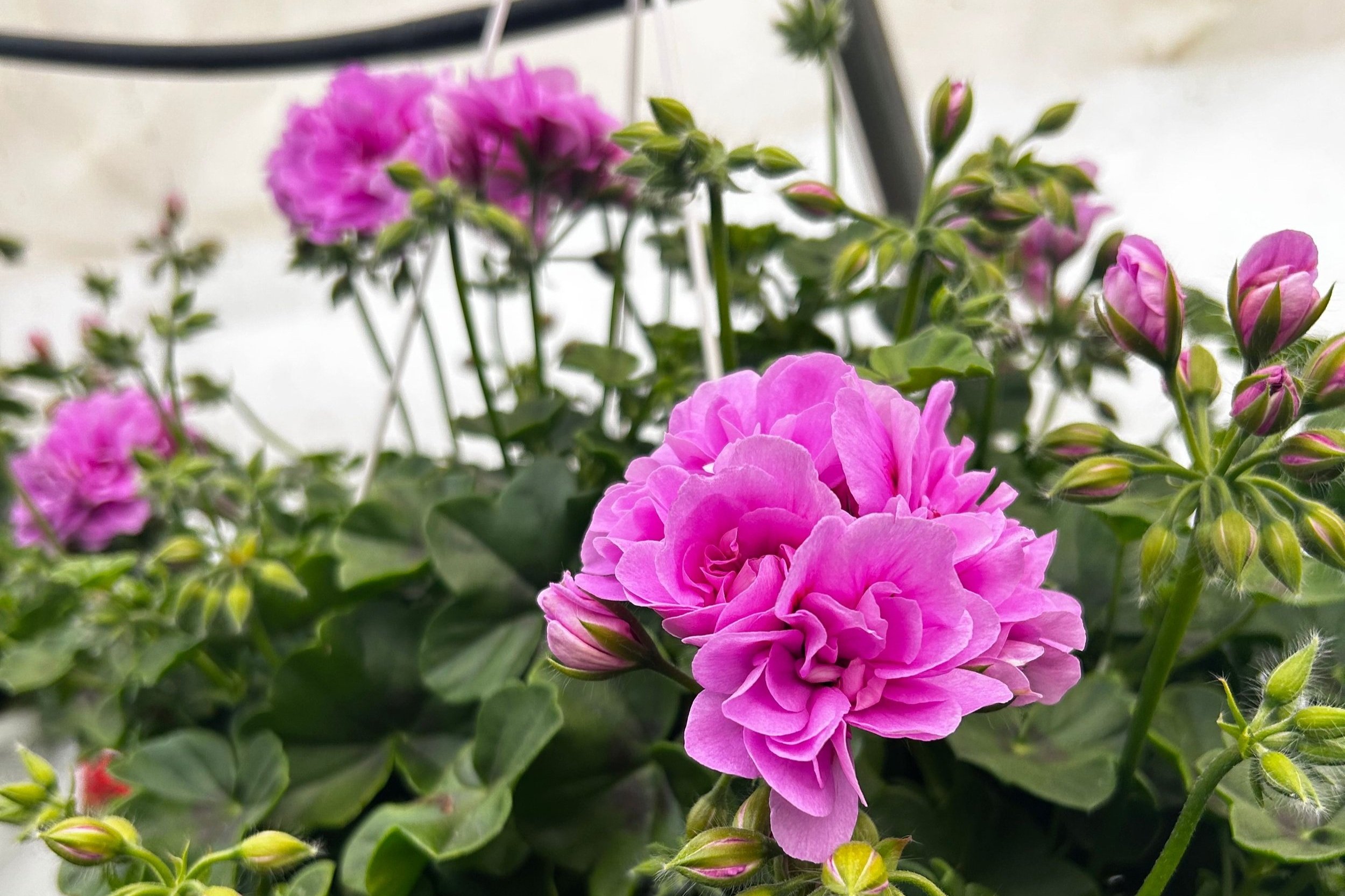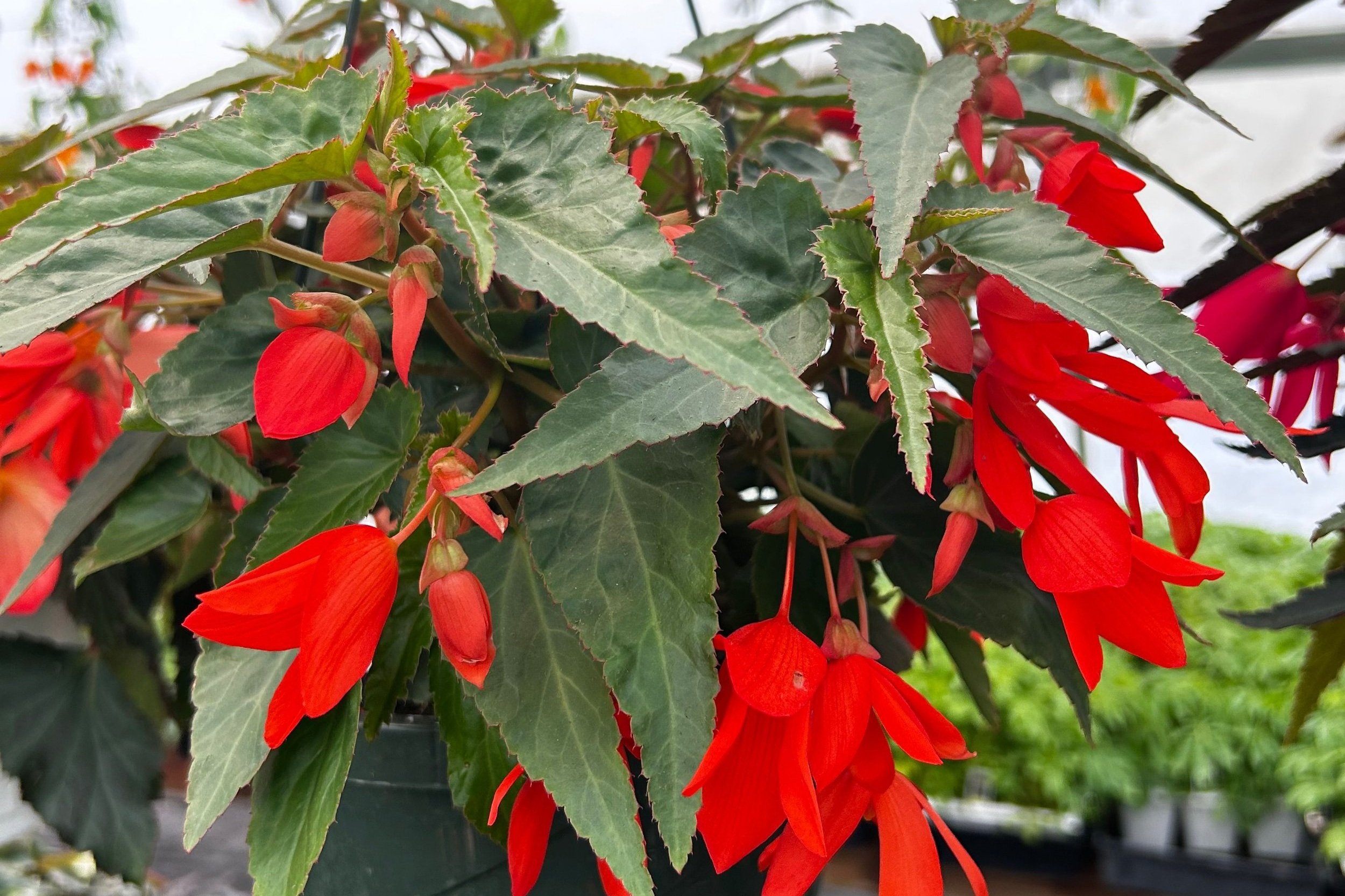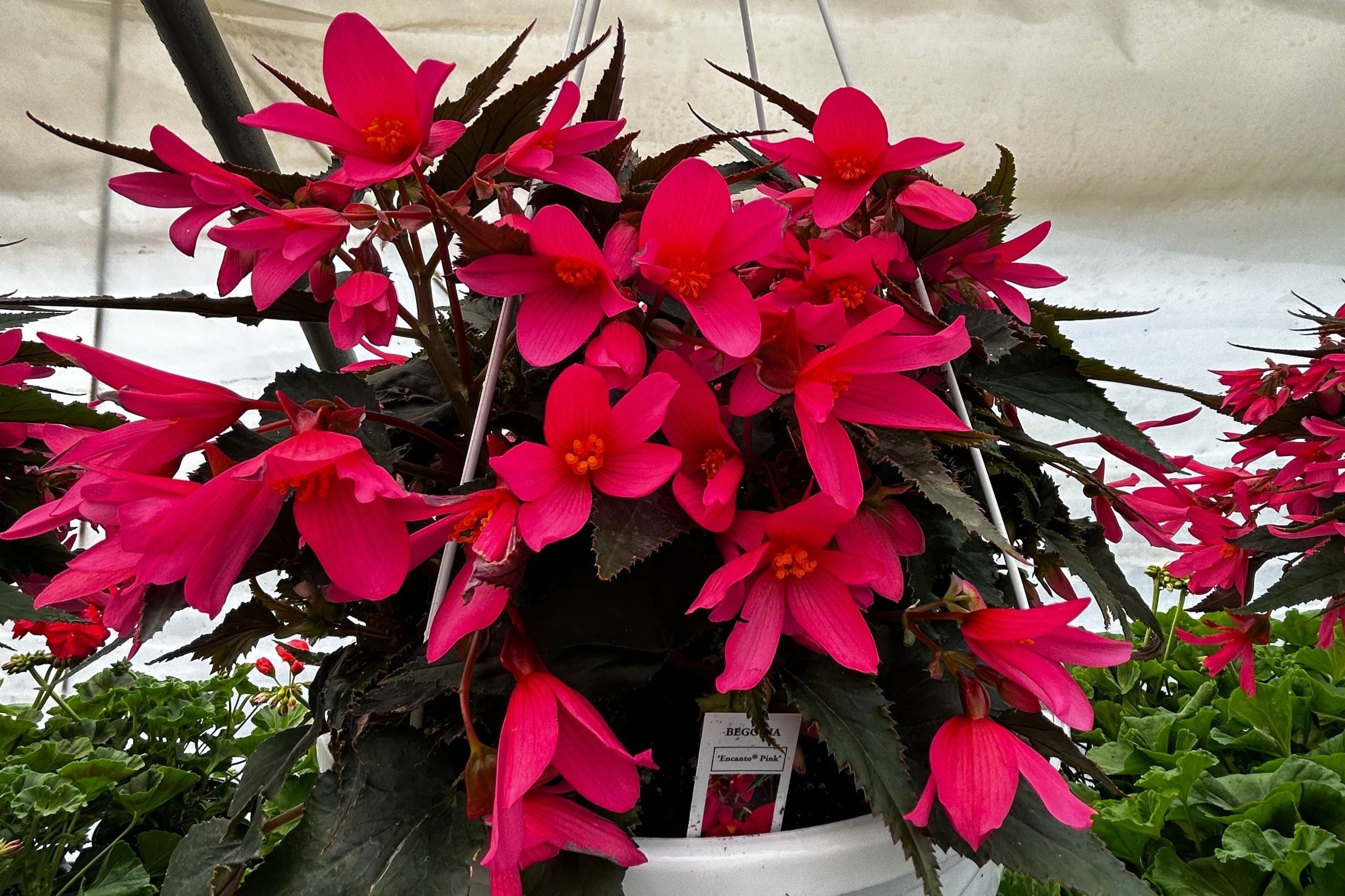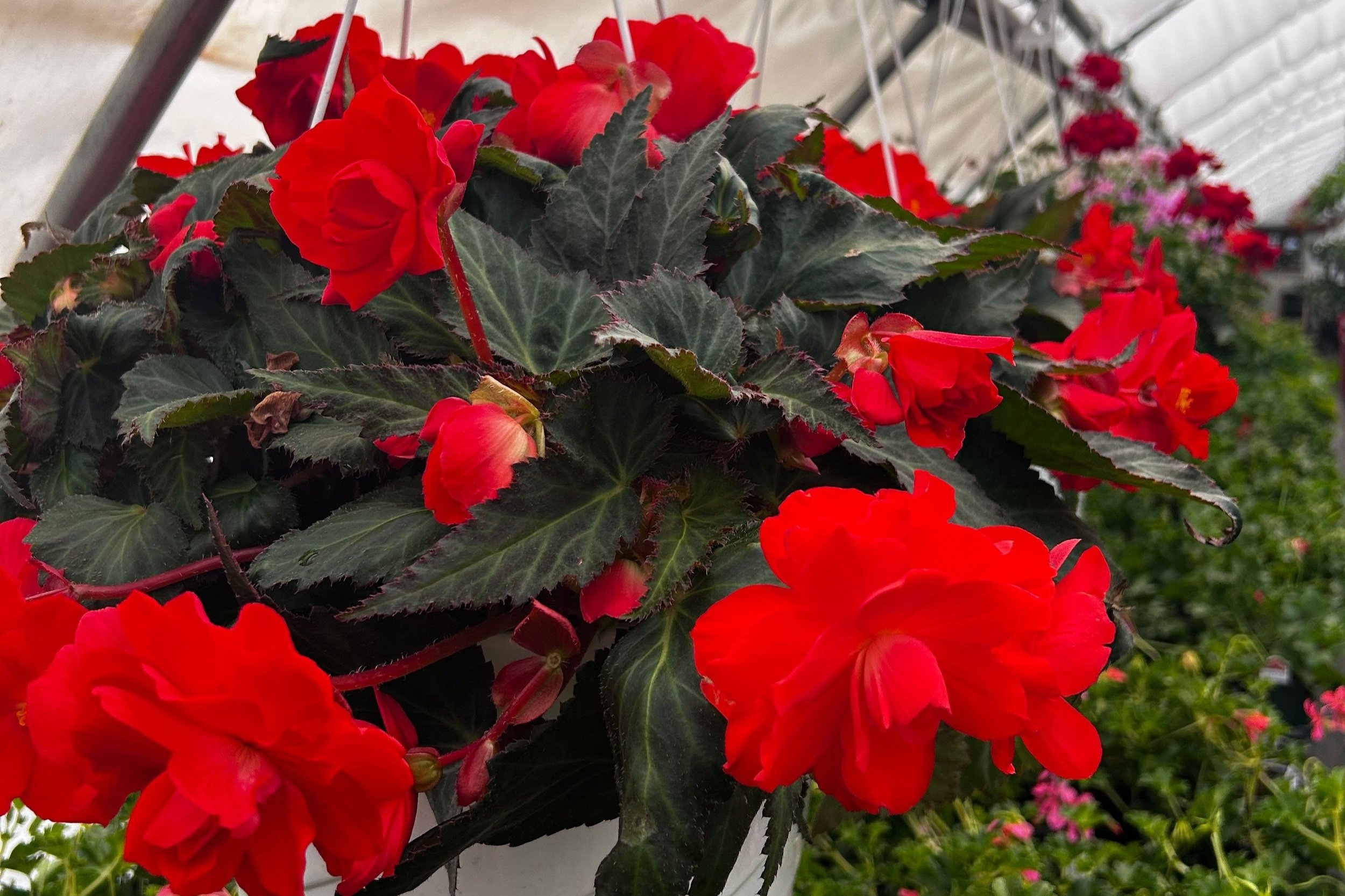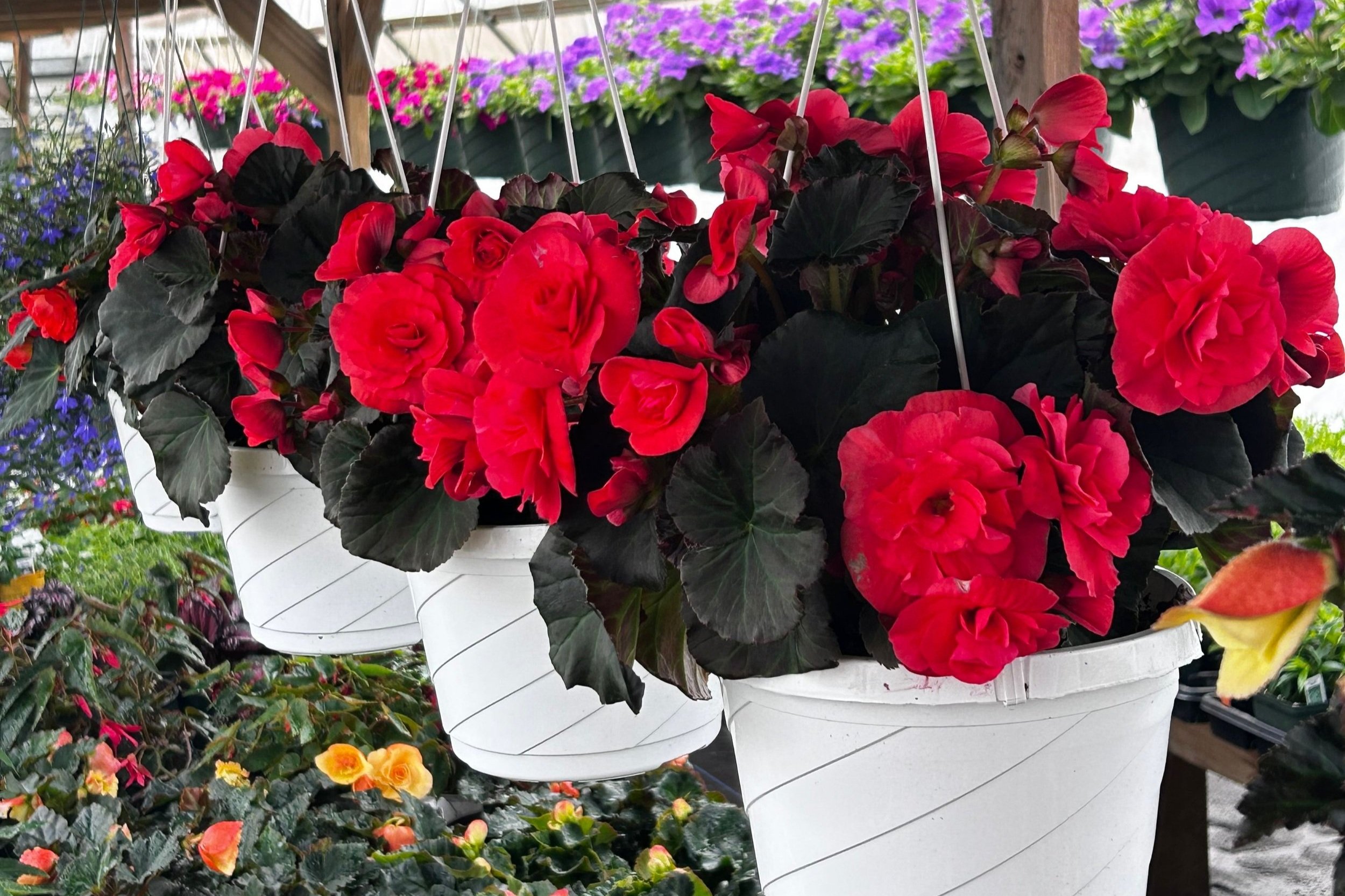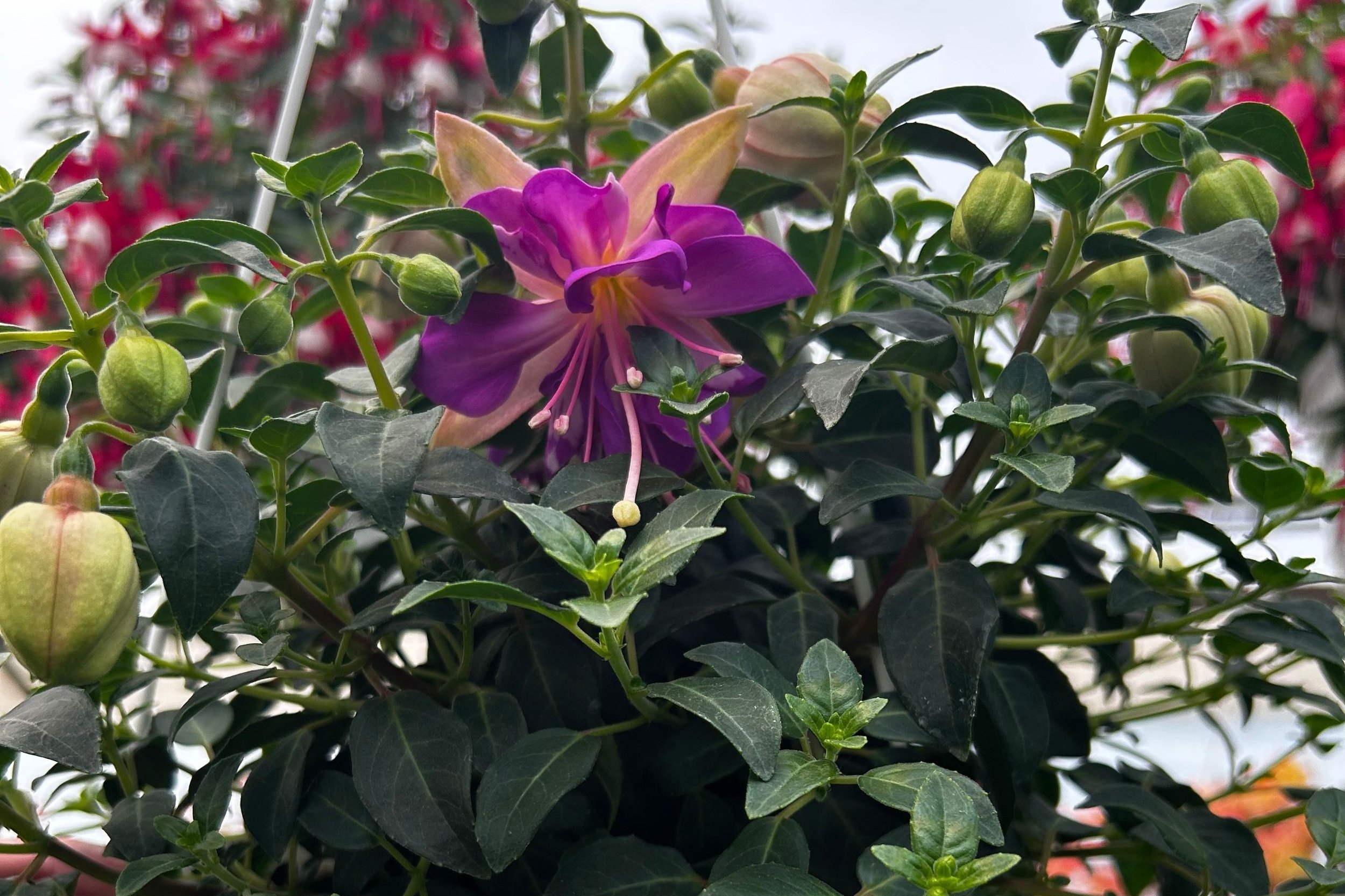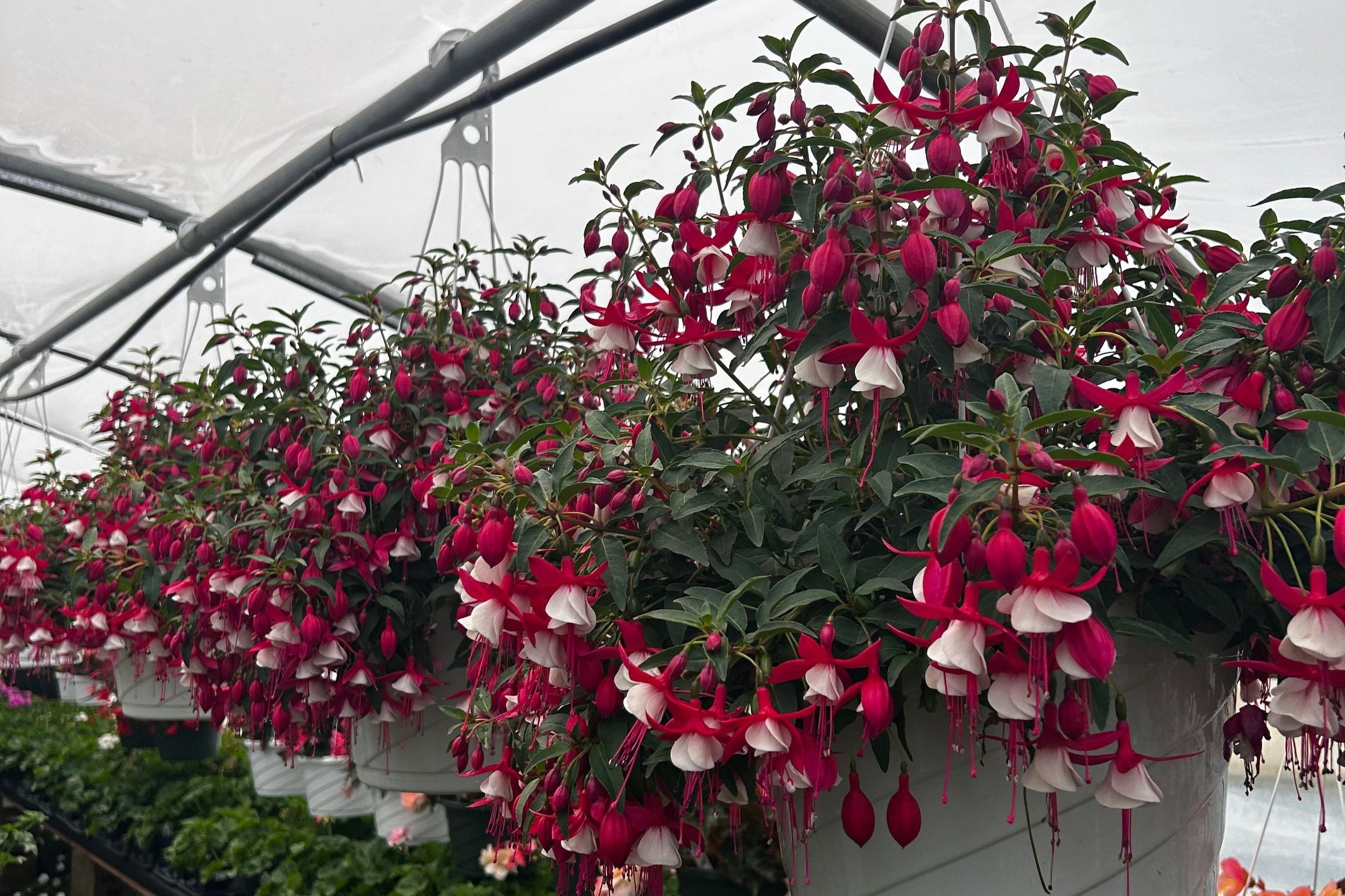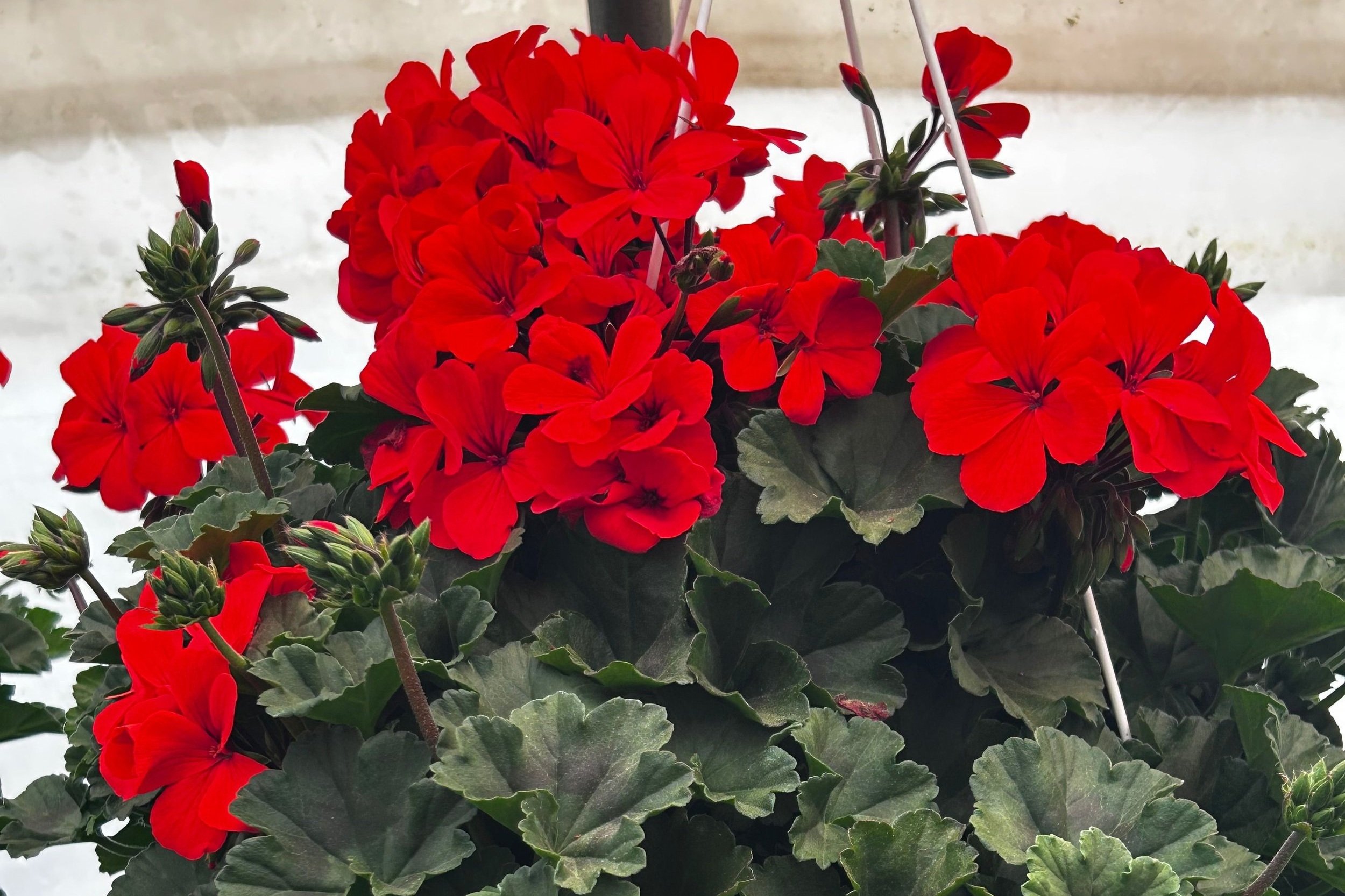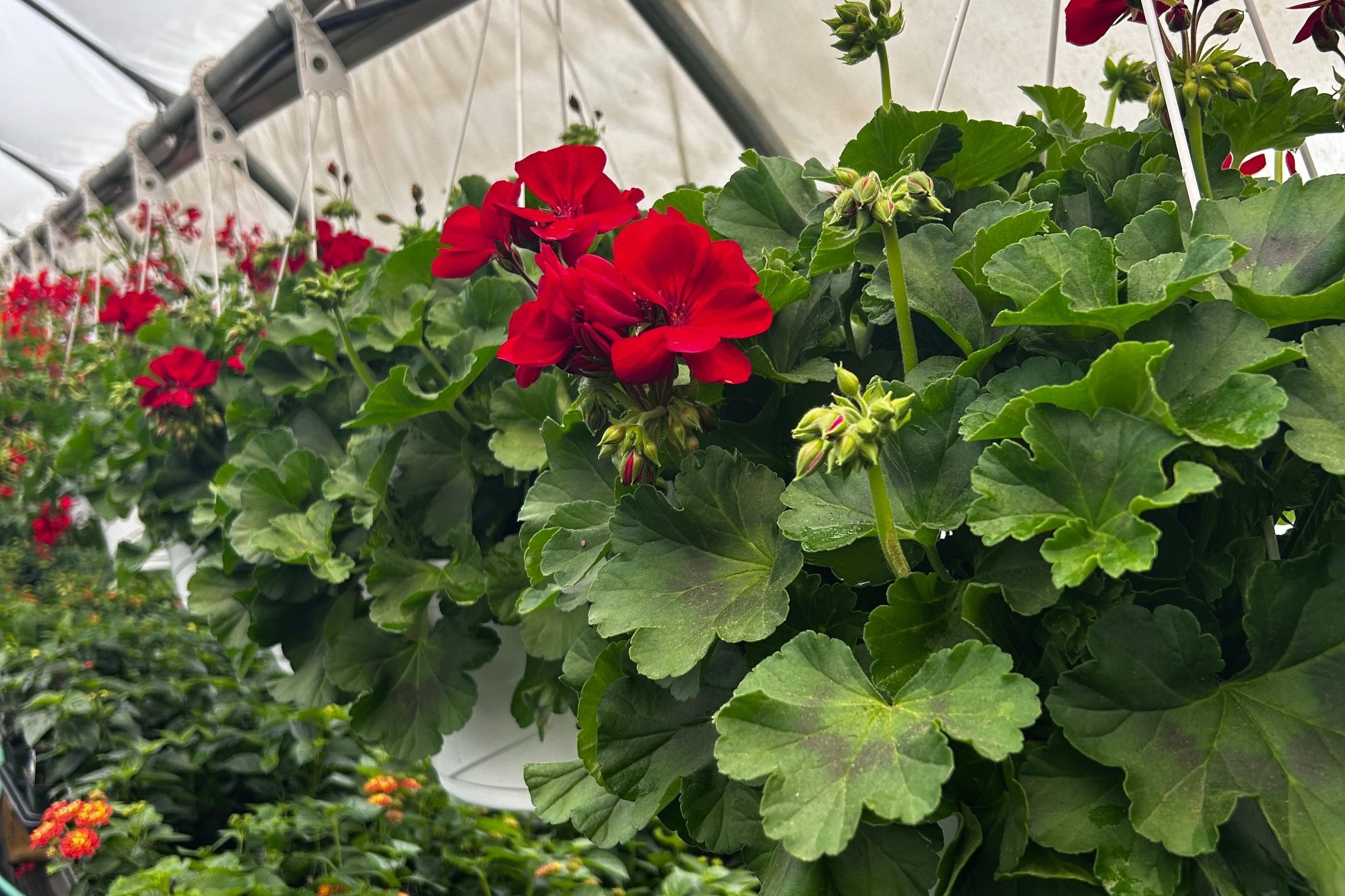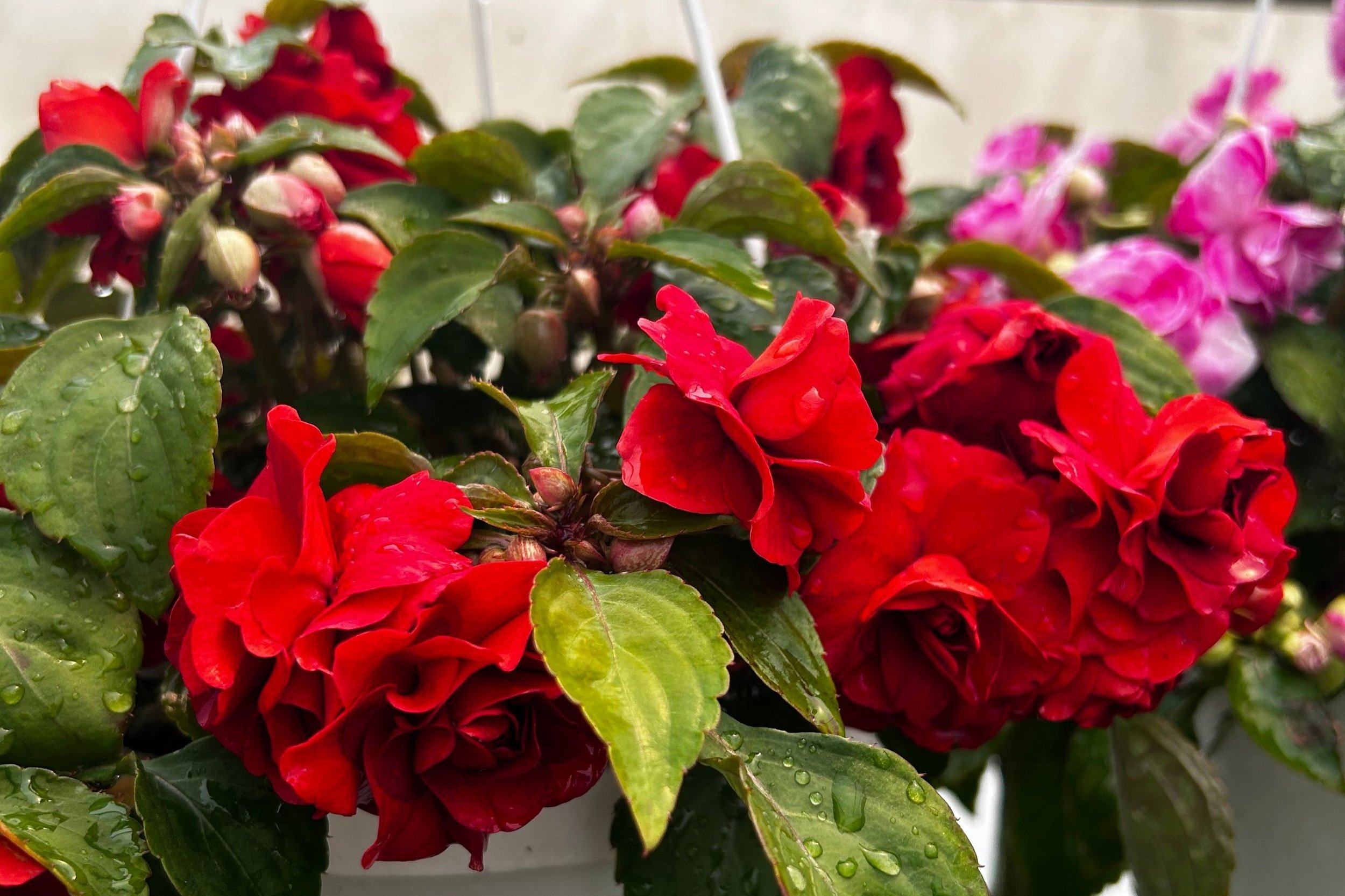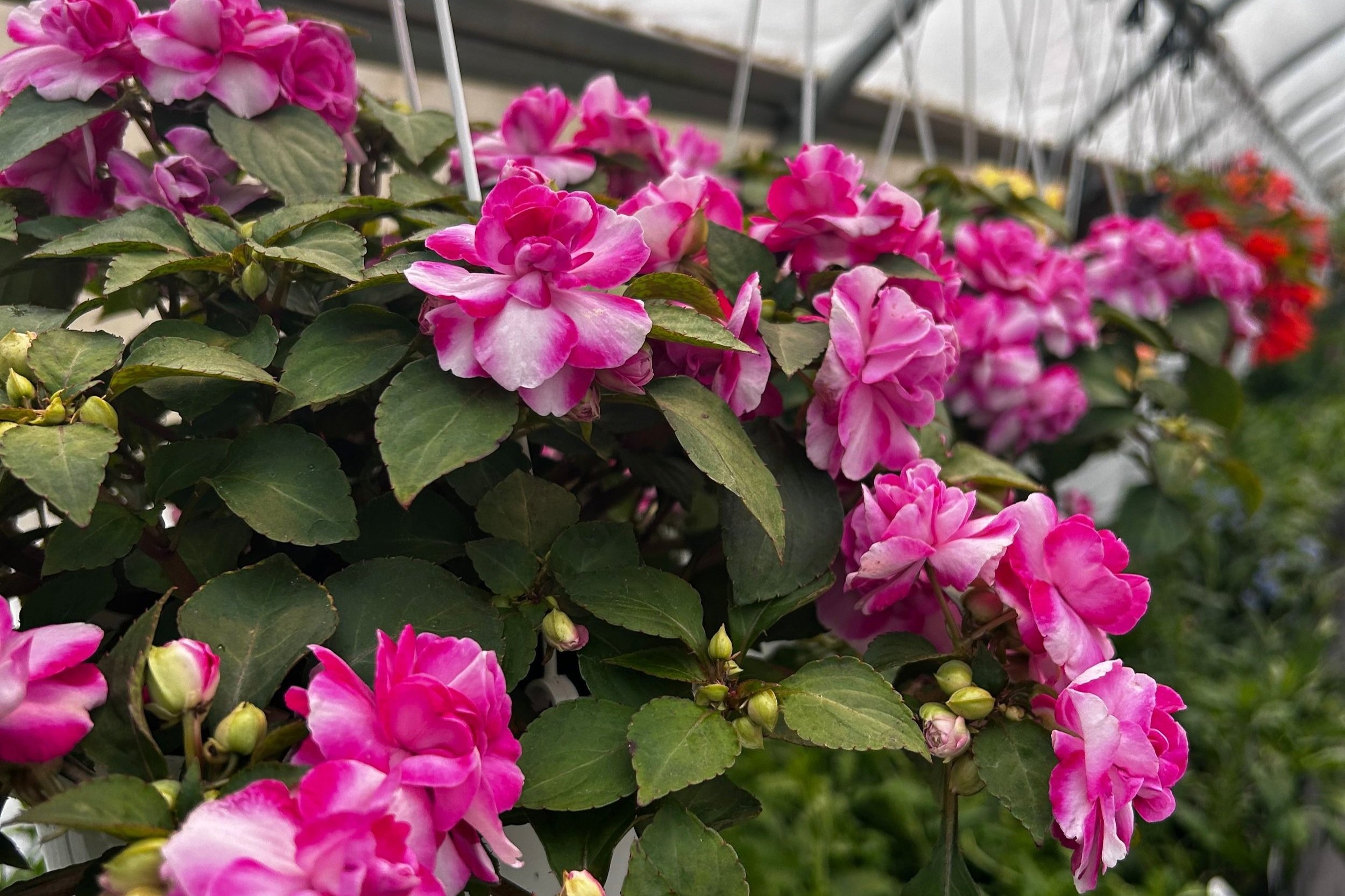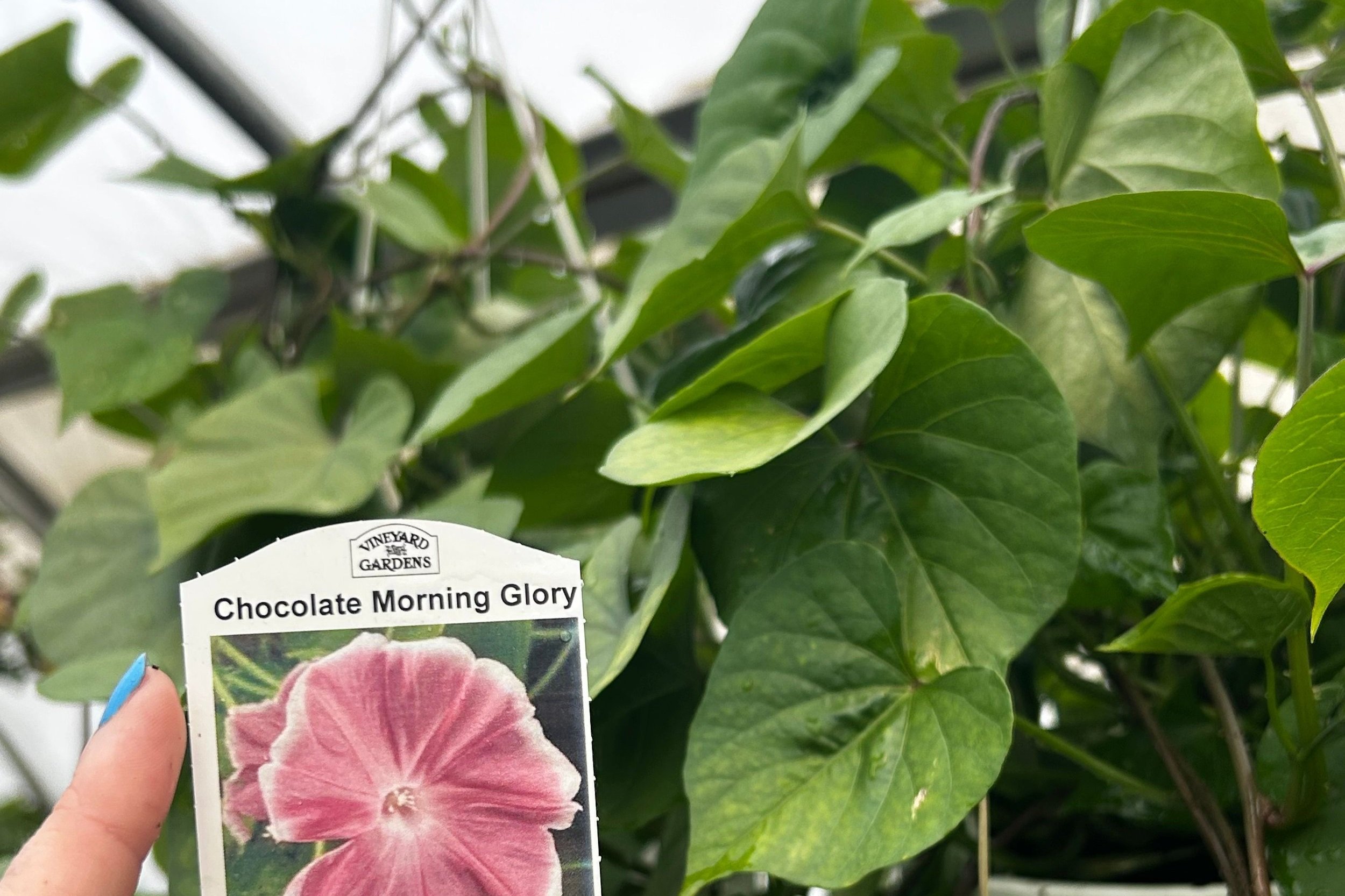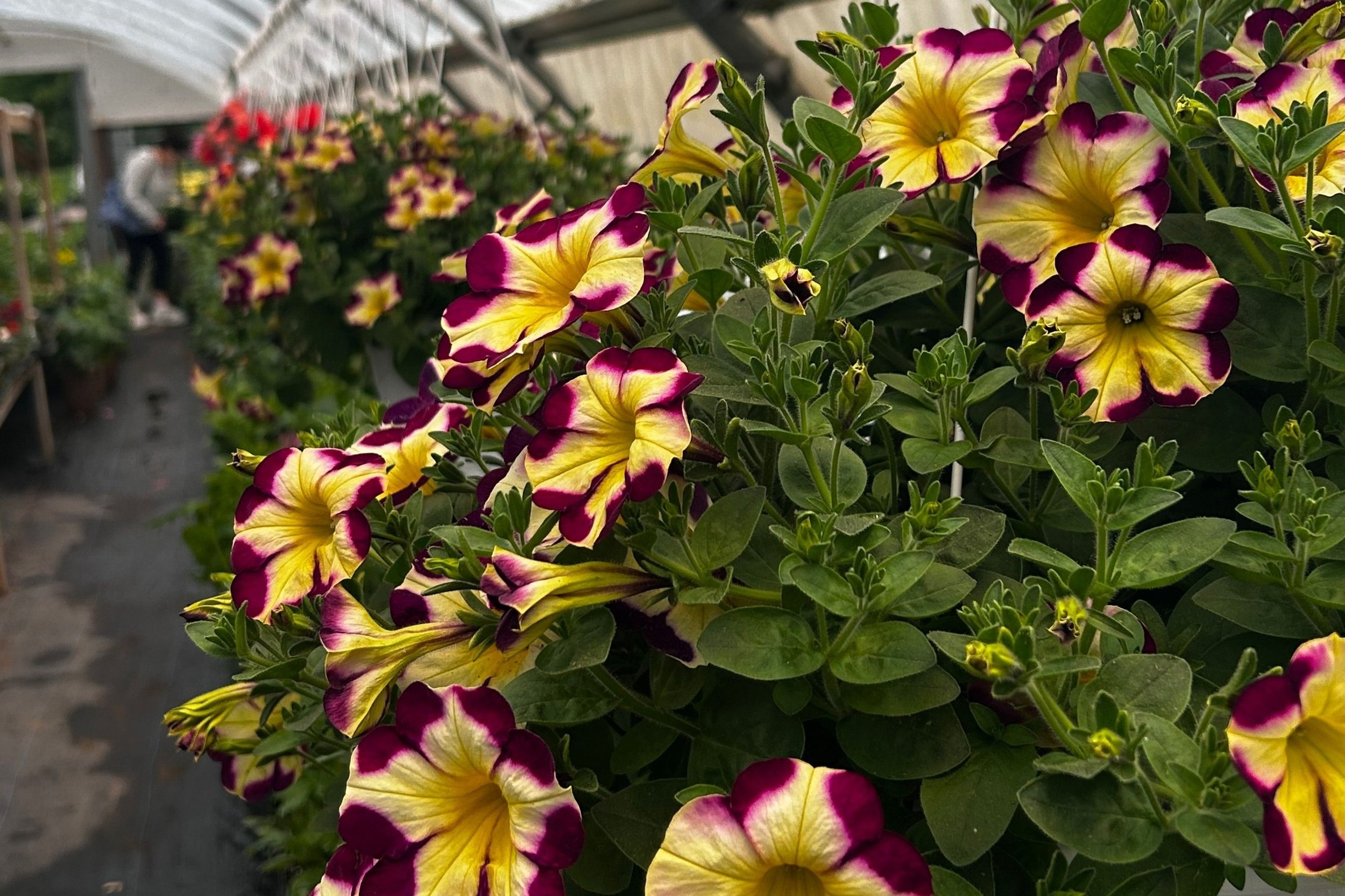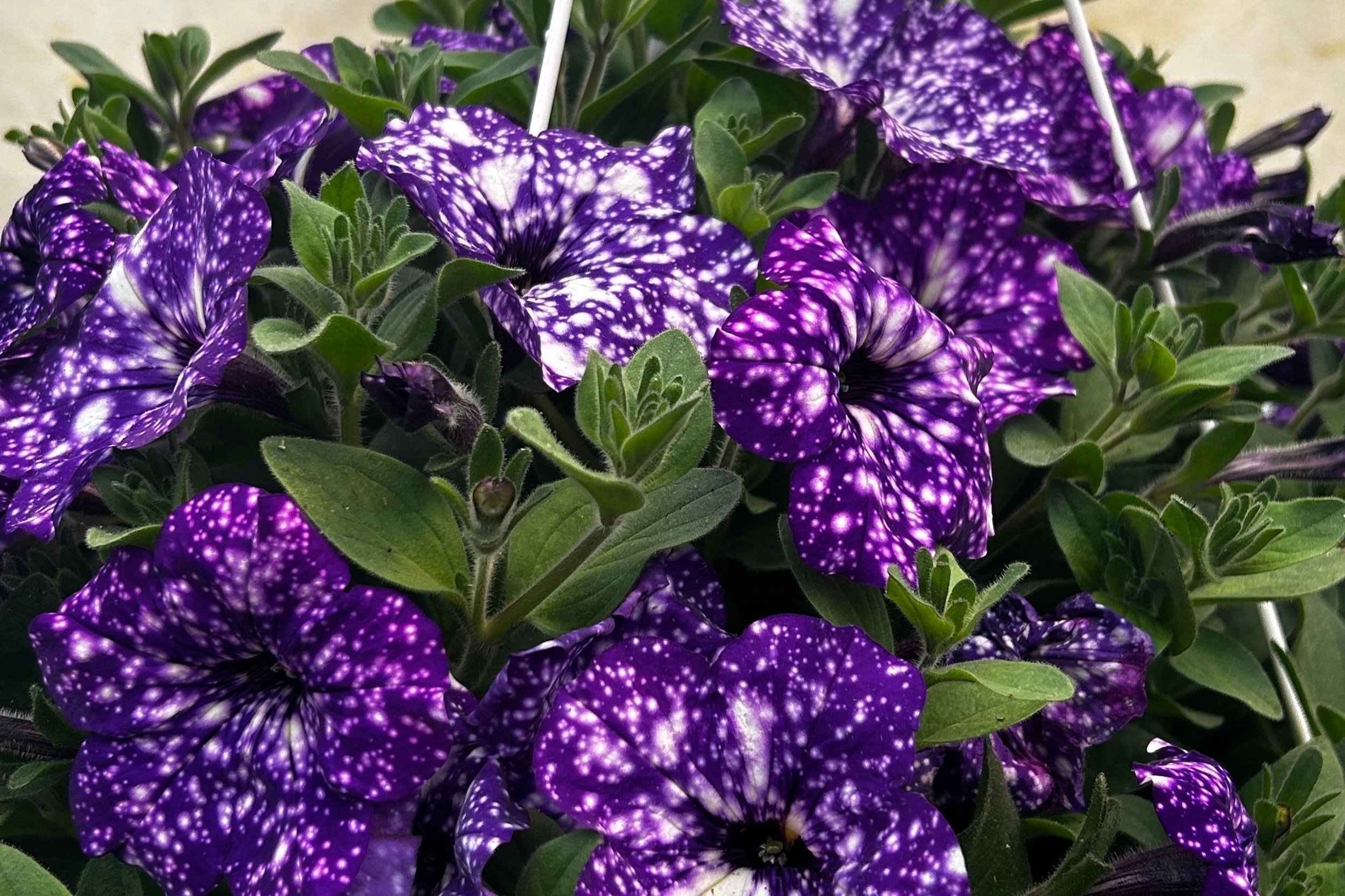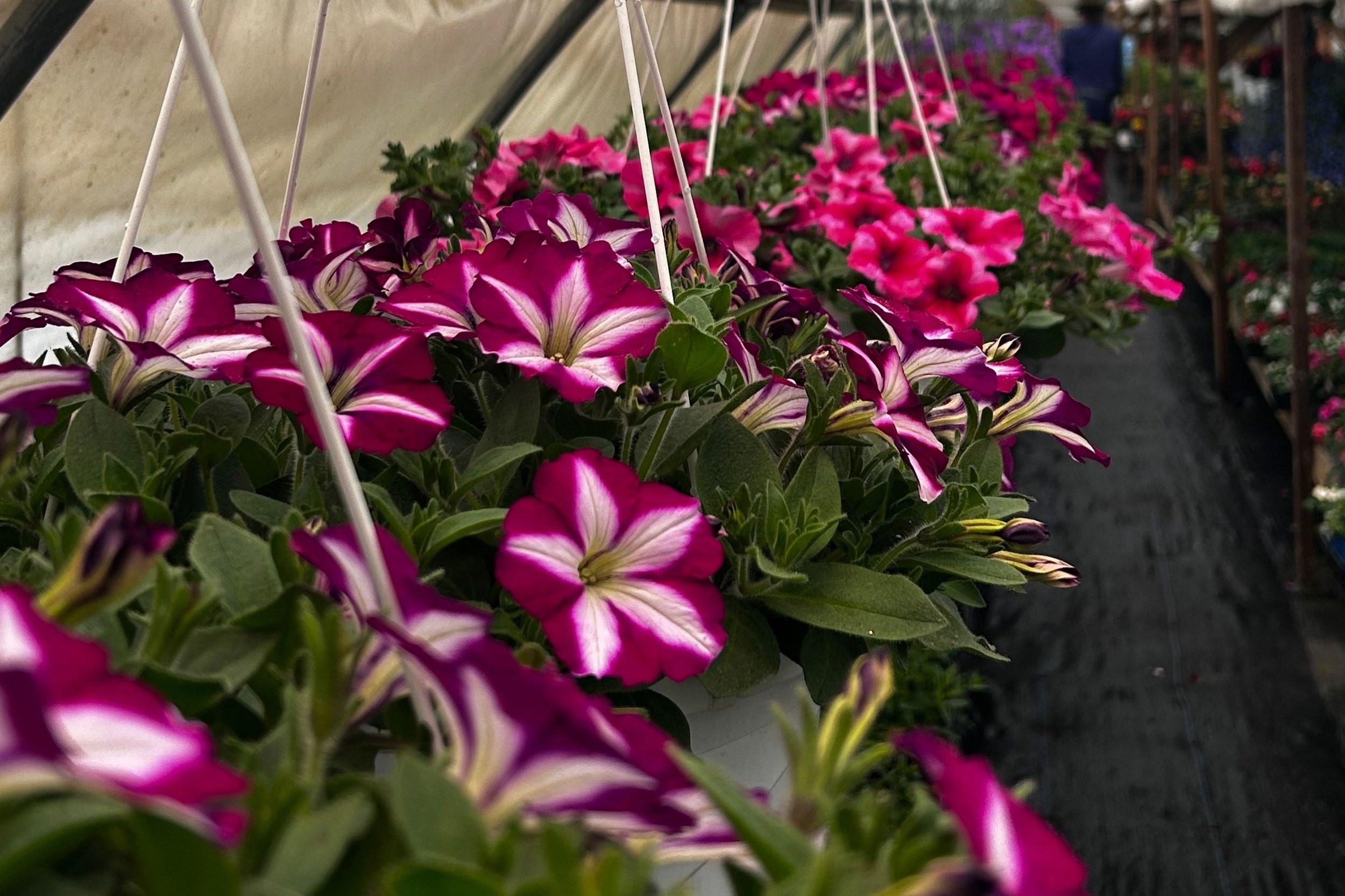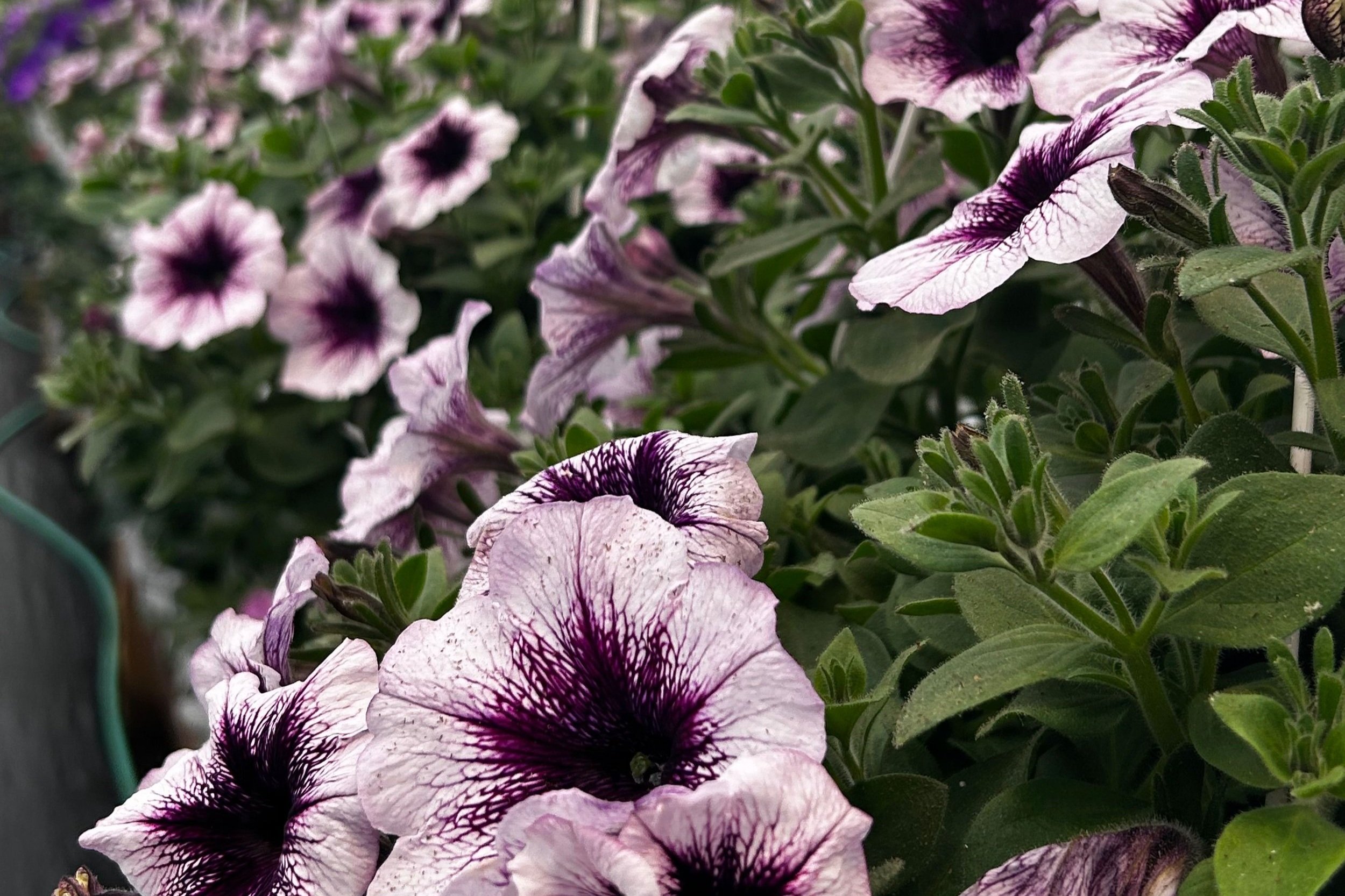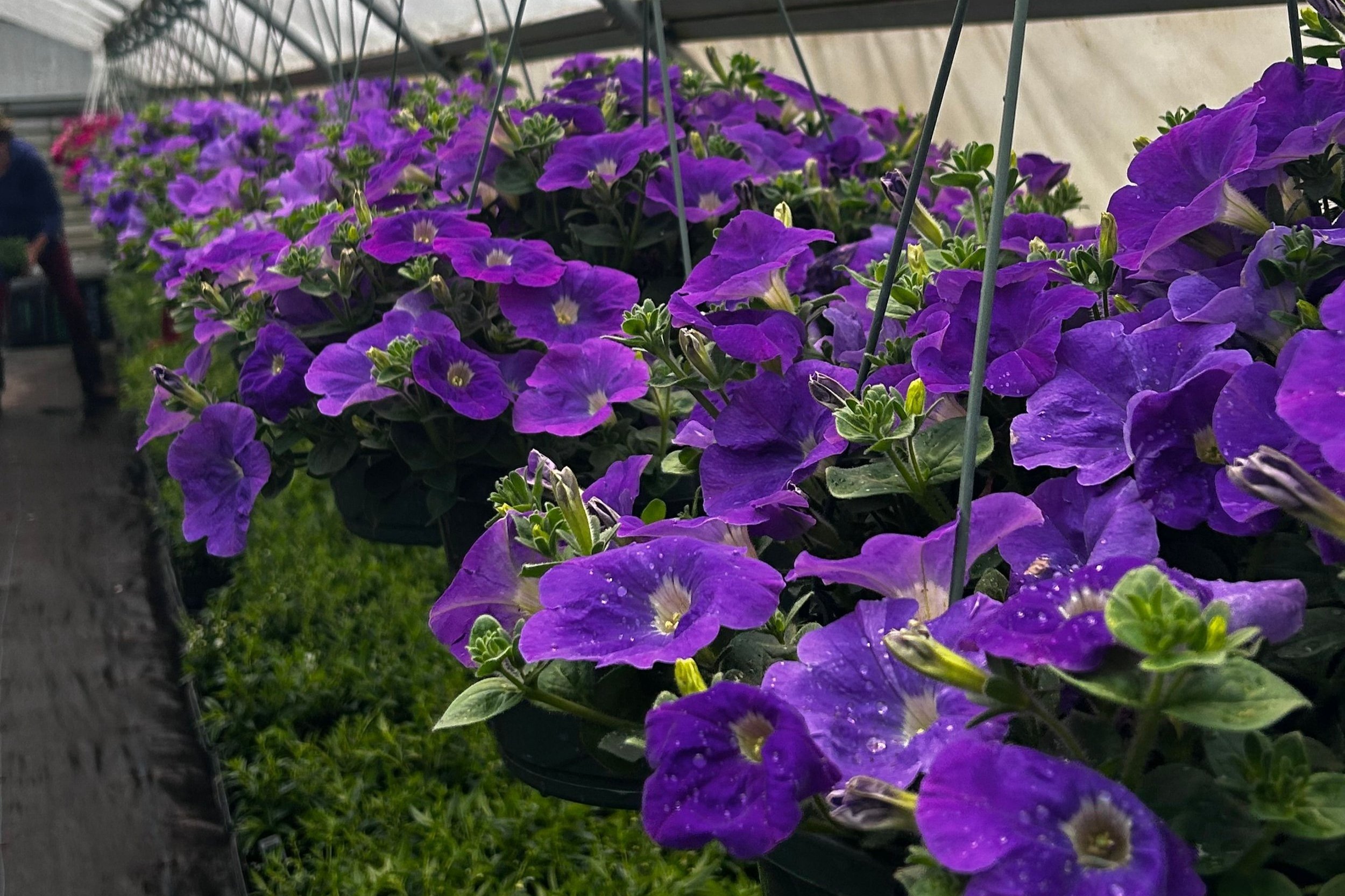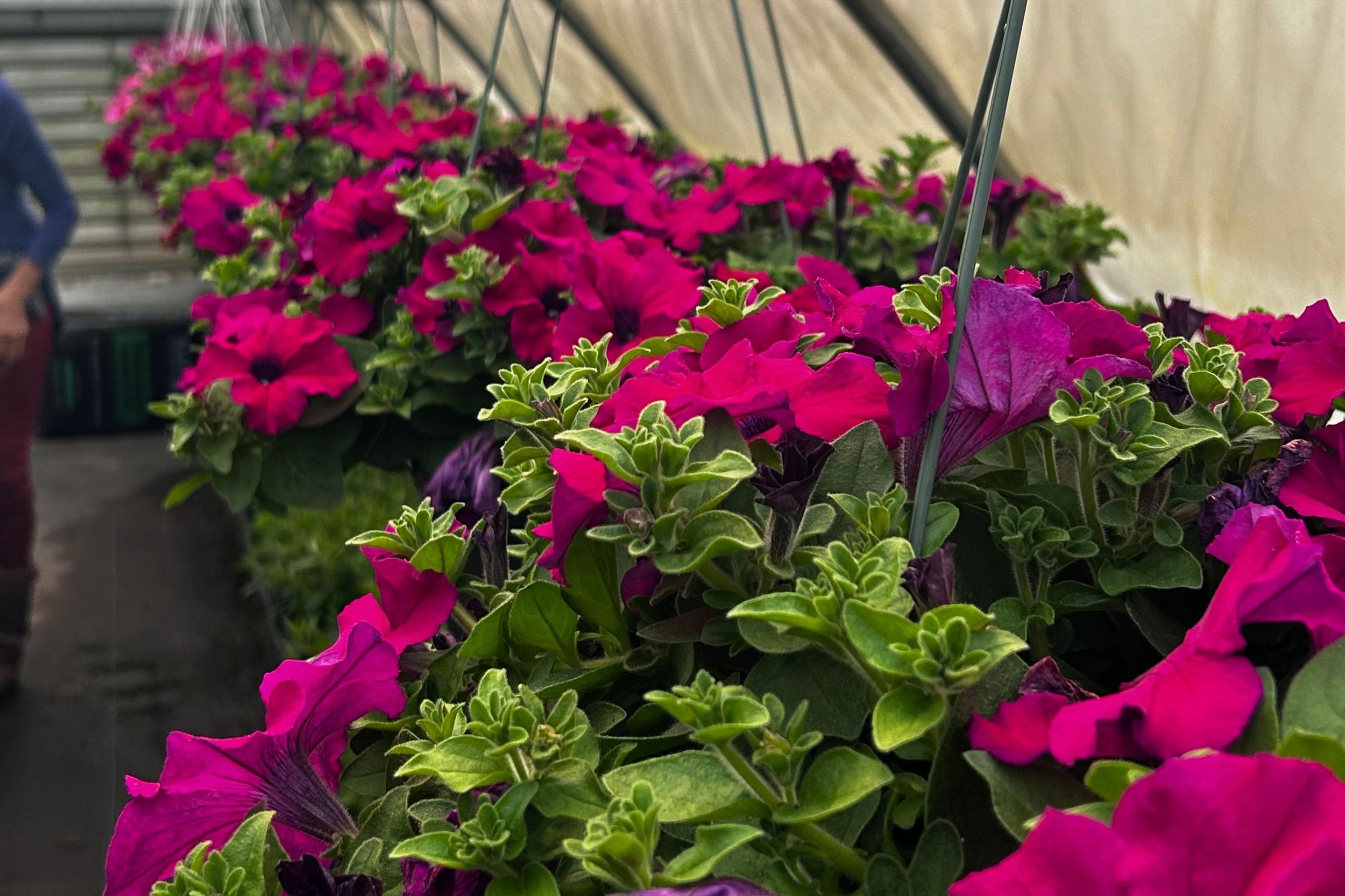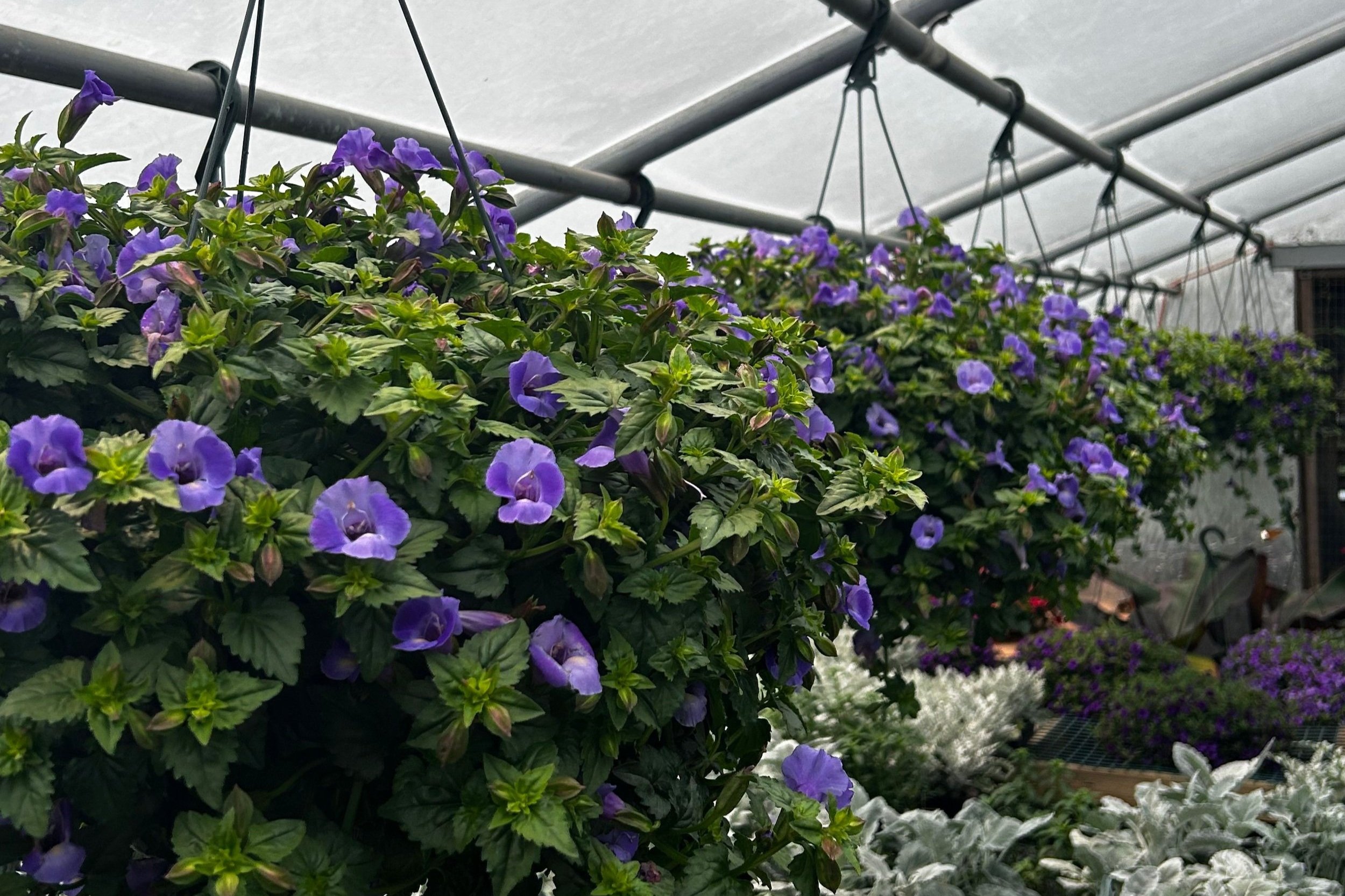JUNE
GARDEN TIPS
June is here, and gardening season is in full swing! With longer days, warmer temperatures, and flowers in full bloom, it's a wonderful time to be outside. Now is when you truly get to enjoy the fruits of your labor: gathering fresh-cut flowers, nibbling on garden veggies and berries, watching pollinators hard at work, and soaking in the rich, fragrant scents of summer.
VEGETABLE GARDENS
We’re still in the thick of planting season and it’s a great time to get your warm season crops in the ground! Now’s the moment for tomatoes, peppers, eggplant, beans, corn, and squash. You can also sow a second round of cool-weather favorites like lettuce, arugula, carrots, and beets.
Be sure to stake your vining plants to keep them tidy and productive. And don’t forget to mulch or top-dress around your veggies to suppress weeds and conserve moisture. Our current favorite is Leaf Mold, an amazing natural mulch that improves soil structure and retains water. Ask about it at the nursery!
PRUNING TIPS
Pinch back rhododendron buds now to encourage even more blooms next year.
Prune spring-flowering shrubs (like lilacs) right after they finish blooming.
Give boxwoods a light shaping once they flush out with new growth, just enough to keep that tidy form.
STAY AHEAD OF WEEDS
Weeds love June sunshine too, so stay on top of them early. A great trick? Fill in gaps with more plants! Dense plantings help crowd out weeds naturally and keep your garden looking lush.
TIME TO MULCH
If you haven’t freshened up your mulch yet, now’s the time. Leaf Mold makes an excellent natural mulch, or choose from our bagged Coast of Maine mulches, available at our nursery.
FEED YOUR PLANTS
Everything that’s in the ground can benefit from a mid-season meal. Use an organic, time-release fertilizer to feed gently and consistently over the coming months. We recommend Espoma fertilizers, they’re packed with micronutrients and break down slowly to nourish your plants sustainably. For a quicker boost, water in a liquid organic fertilizer, perfect for fast-acting support. Ask us about our favorite blends when you visit!
ANNUALS & CONTAINERS
It’s a perfect time to plant out annuals in your containers, window boxes, and garden beds. For the best blooms, deadhead regularly and keep them fed! Add a slow-release organic fertilizer when planting, then follow up with a weekly treat of quarter-strength liquid fertilizer to keep them thriving.
Need help picking the right products or plants?
Stop by the Garden Center, we’re happy to help you choose the best options for your space and soil.
***************
Oenothers Siskiyou Pink
Phlox divaricata (woodland phlox) with Euphorbia polychromatic
Water
Water constantly! All newly planted or transplanted plants need deep watering 1 to 2 times a week, depending on rainfall and sun exposure.
For trees and woody shrubs, a good rule of thumb is:
Once a day during the first week to saturate the root zone
Once a week for the first year, unless we’ve had a soaking rain
July and August are especially critical months to stay on top of watering.
What’s a “deep water”? It depends on your watering method:
Holding a hose at full flow on a shrub may only take a few minutes
A sprinkler covering a large area should run for about an hour, as long as there’s no runoff
Morning is the best time to water. There is less evaporation, and plants can absorb the moisture before the heat of the day.
It’s a myth that watering during the heat of the day will cause leaf burn. If that were true, every rain shower followed by sun would scorch your plants!
A 1 to 3-inch layer of mulch slows evaporation, protects roots, and gradually breaks down to improve soil structure and moisture retention.
Need help with watering?
Vineyard Gardens offers everything from basic watering services to full irrigation installations. We even hand-water, especially for newly planted beds, trees, or shrubs. Let us know if you'd like an evaluation or quote, we’re happy to help.
Delphinium, Foxglove with Yarrow and Oenothers Siskiyou Pink



